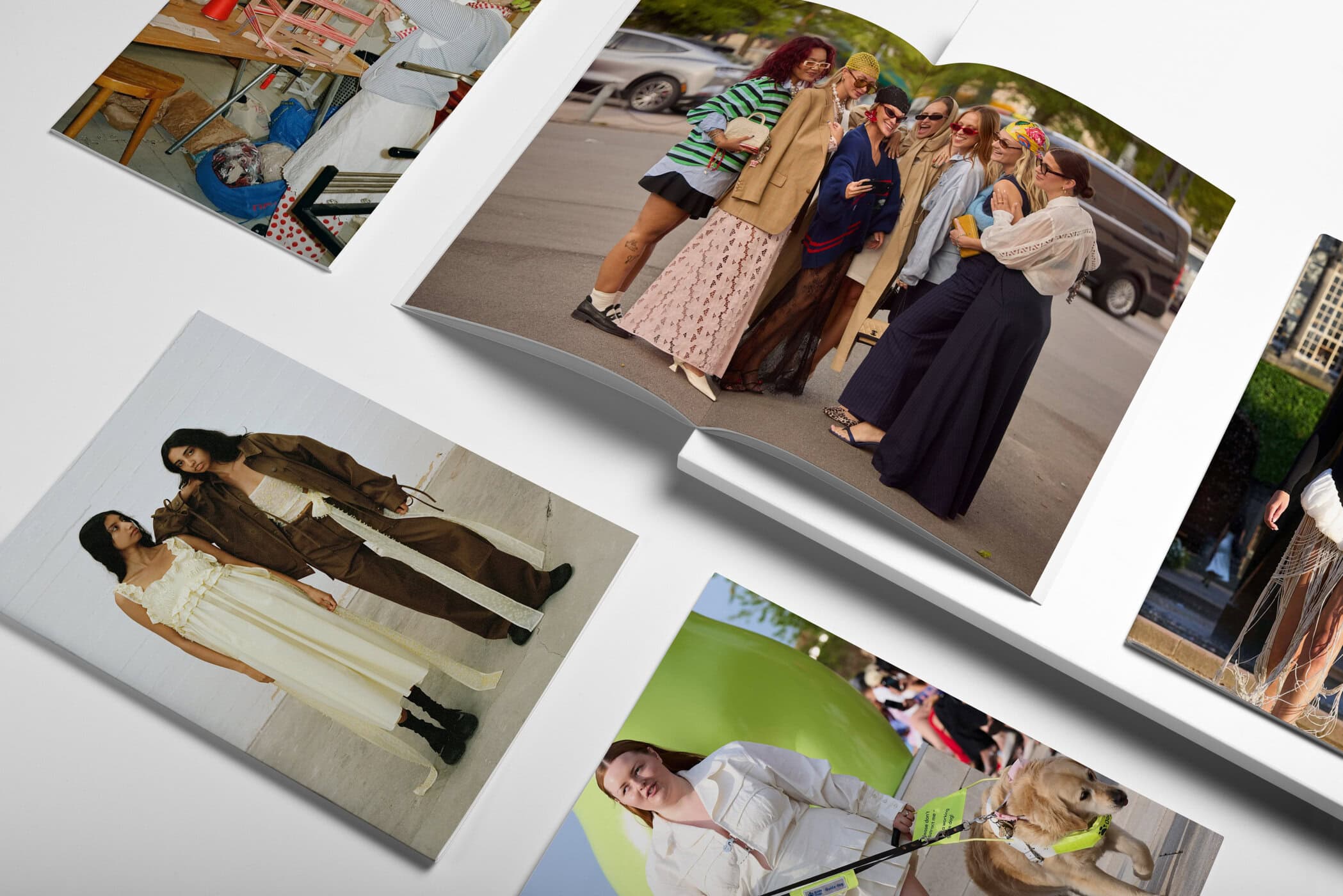Key Takeaways from Copenhagen Fashion Week
By Mackenzie Richard
Copenhagen Fashion Week has long been a hub of innovation, pushing the boundaries of what Scandinavian fashion can be. This season, the Spring/Summer 2025 edition brought forward a compelling mix of creativity and inclusivity, challenging the traditional notions of the ‘Scandi’ aesthetic. From history-making moments on the runway to fresh design perspectives that prioritize sustainability, CPHFW offered a glimpse into the future of fashion—one that is more thoughtful, diverse, and forward-looking.
As new talent emerged and established designers took bold steps, it became clear that the essence of ‘Scandi’ is evolving. This season wasn’t just about style; it was about redefining the values that underpin fashion, and in doing so, setting a new standard for the industry at large.
Nurturing New Talent
CPHFW has always been a platform for nurturing new talent, and this season introduced a cohort of promising designers under the ‘One to Watch’ scheme. Each of these fledgling labels brings a fresh perspective to Scandinavian fashion, challenging the status quo with their commitment to responsible, slow fashion.
Sól Hansdóttir, known for her zero-waste, colorful knits, debuted her intricate designs made from deadstock materials. Sarah Brunnhuber’s Stem label also caught attention with its zero-waste knitwear, utilizing an innovative weaving technique that eliminates production waste. Meanwhile, Bonnetje, by Anna Myntekær and Yoko Maja Hansen, offered a conceptual take on reconstructed menswear, standing out in a market often dominated by minimalism.
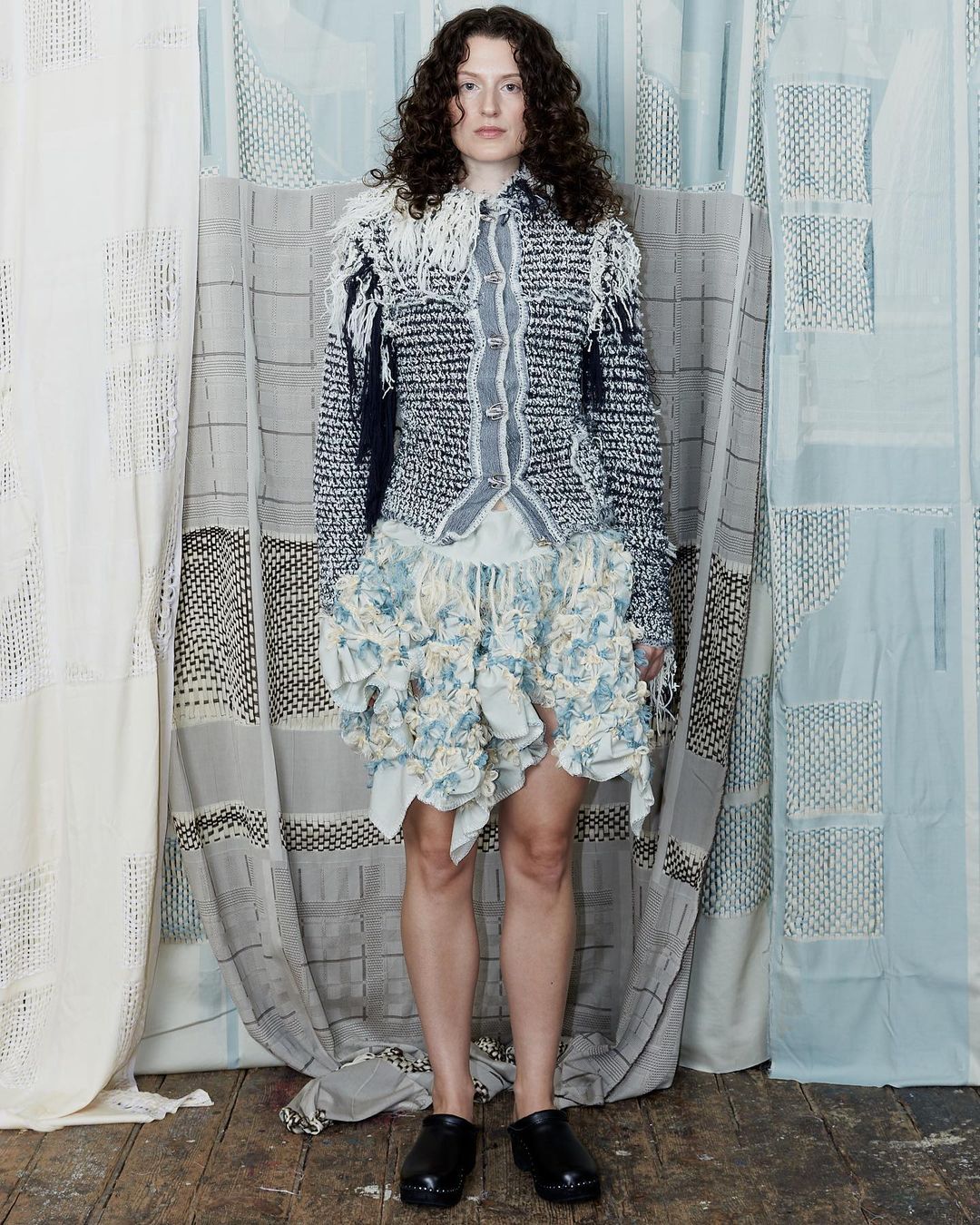
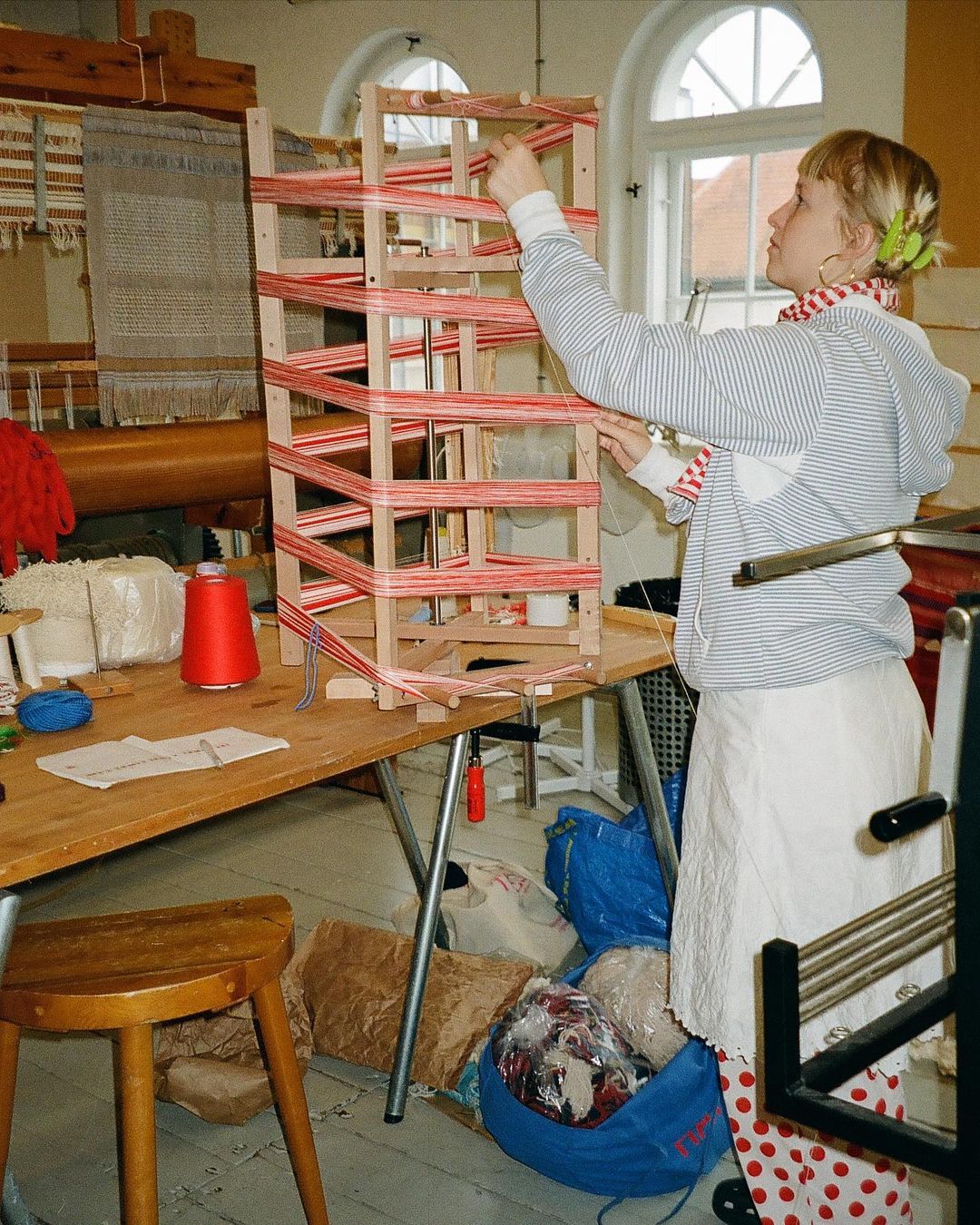
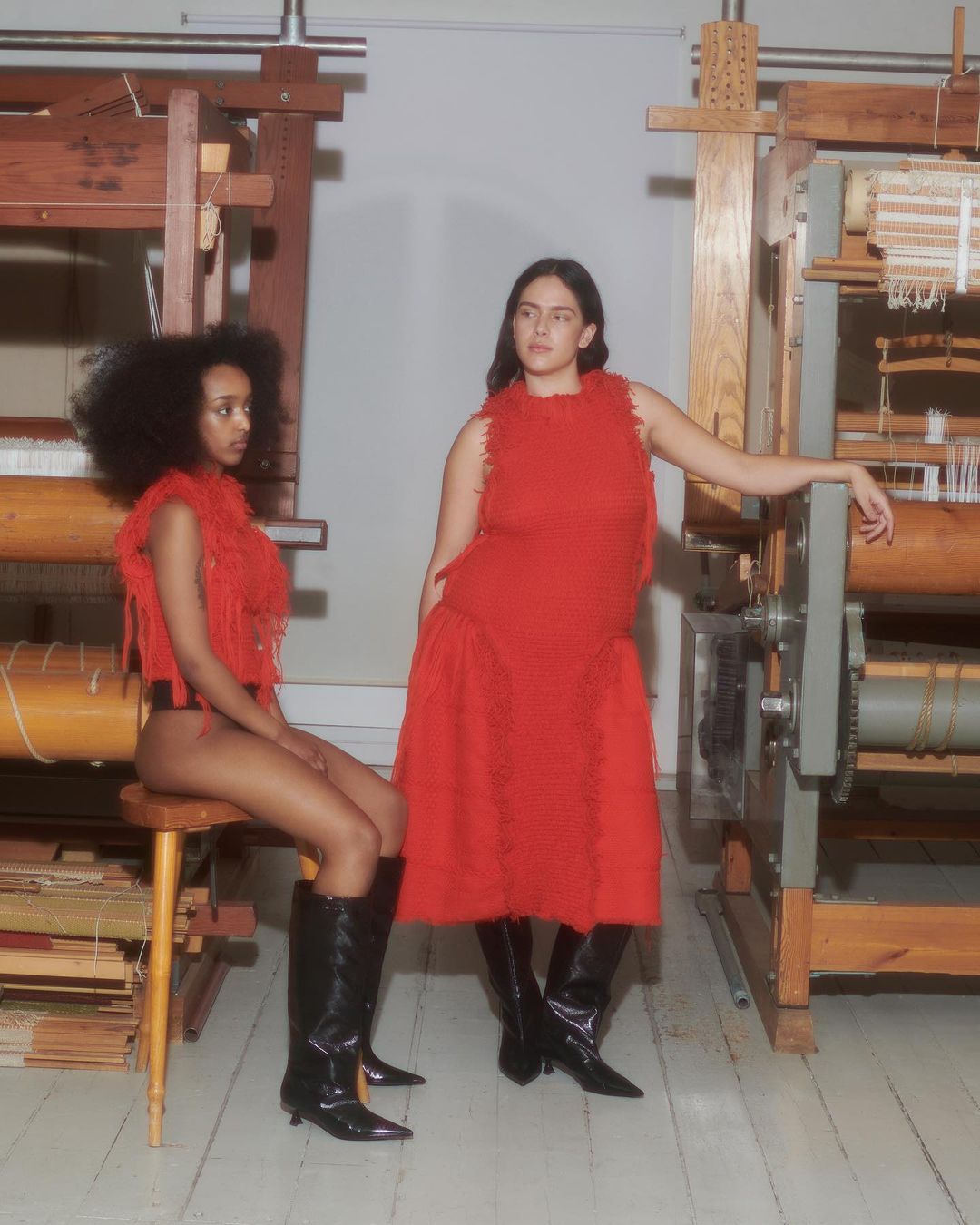
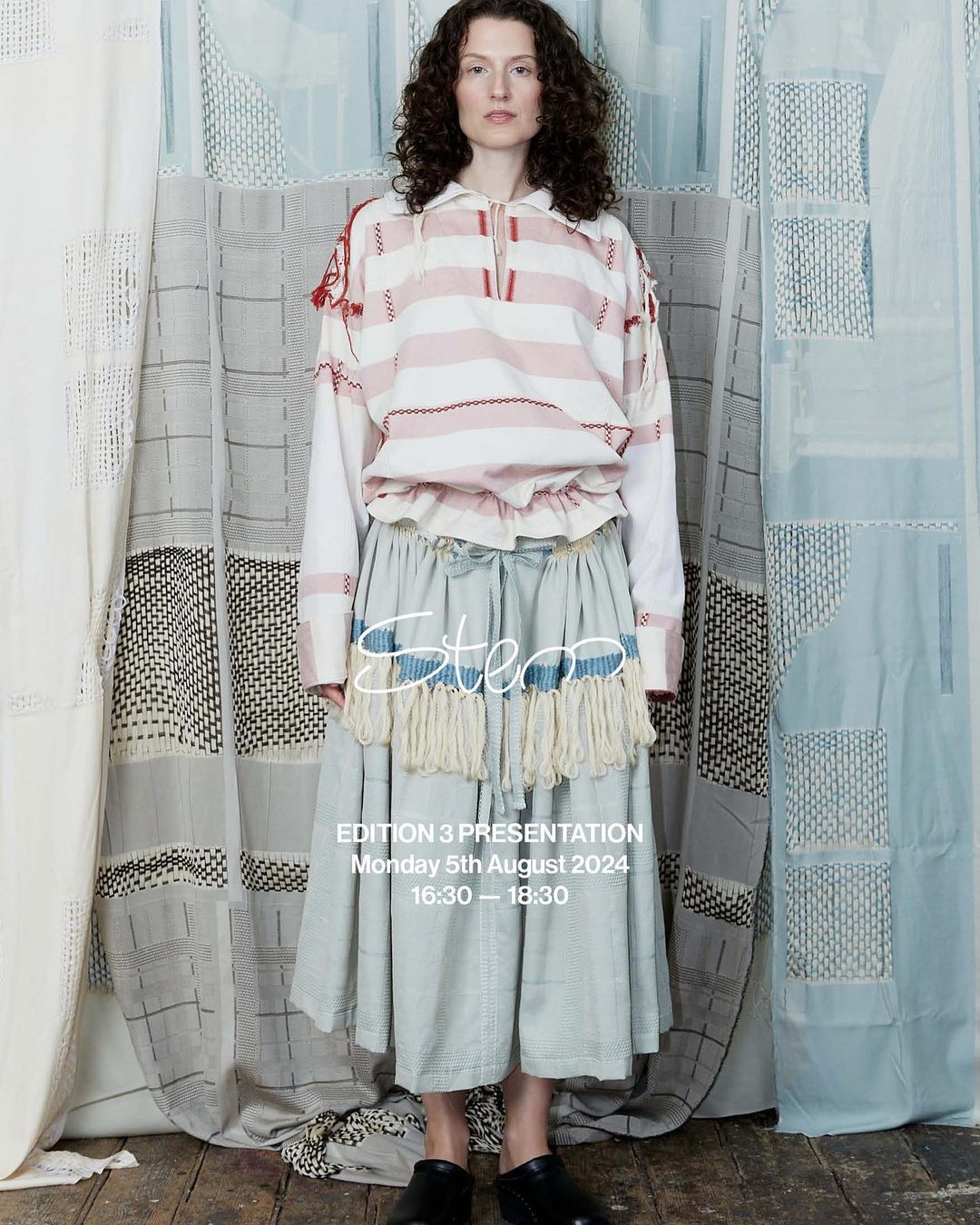
These designers are not only redefining what it means to be “Scandi” but are also setting new standards for sustainability and creativity in fashion. Their work underscores a shift towards more thoughtful, less wasteful practices, a necessary evolution in an industry grappling with its environmental impact.
A Historic Walk on the Runway
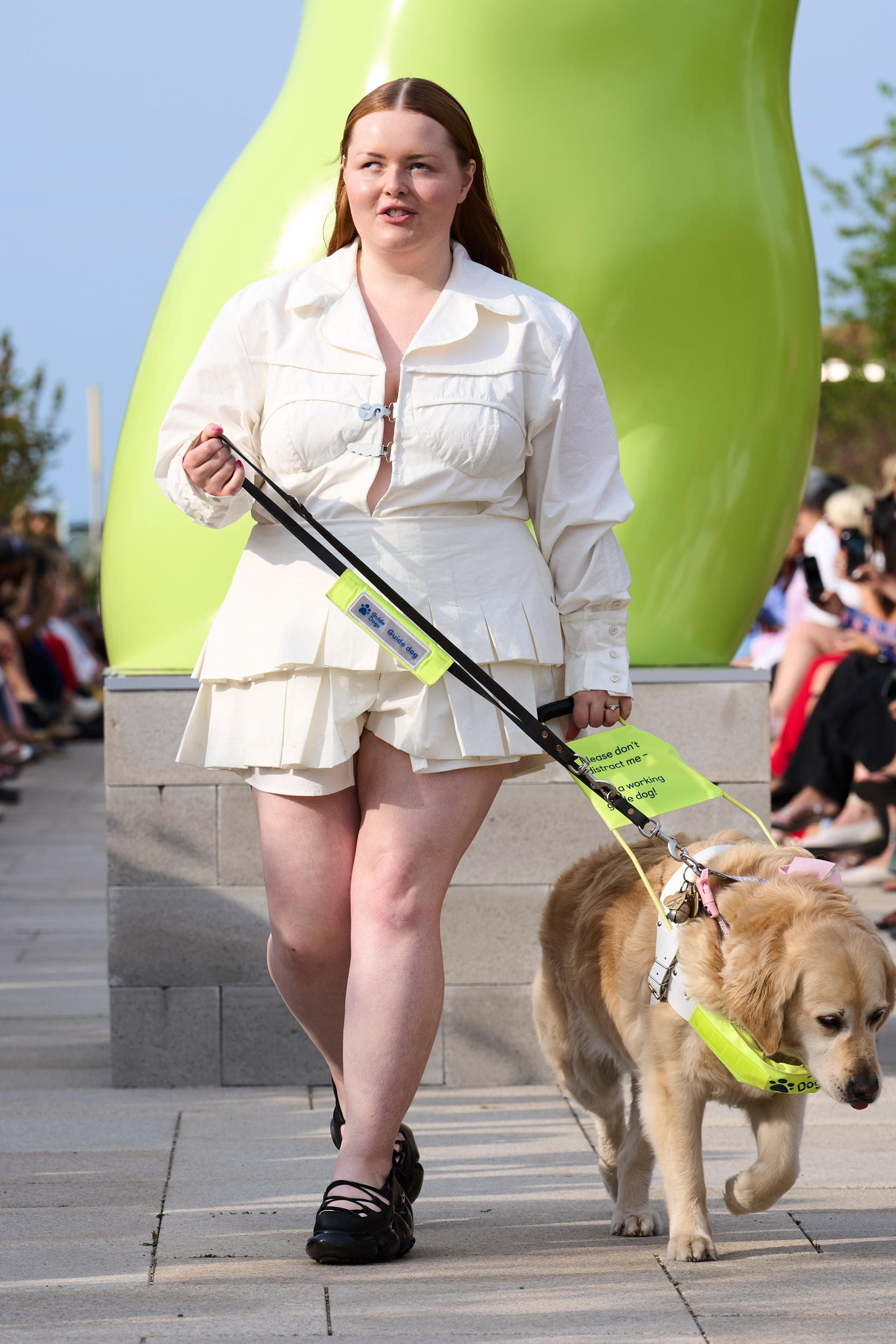
In a poignant moment that will be remembered as a milestone in fashion history, Lucy Edwards became the first blind person to walk the runway at Copenhagen Fashion Week. Striding with grace and confidence in Sinéad O’Dwyer’s show, accompanied by her guide dog, Edwards shattered preconceptions and opened new dialogues about inclusivity in fashion. This wasn’t just a token gesture; it was the result of meticulous planning and collaboration between O’Dwyer, the Danish Association of the Blind, and the non-profit organization Hair and Care, founded by hairstylist Anna Cofone.
Cofone, who herself has a deeply personal connection to the blind and low-vision community through her late father, worked tirelessly to ensure that the entire experience was accessible—not only for Edwards but for all visually impaired attendees. Tactile tours of the collection, audio descriptions, and fabric swatches were just some of the thoughtful measures put in place. This level of consideration highlights a growing acknowledgment within the industry: fashion, in its truest form, is for everyone.
The Winds of Change: Trends and Strategies
Amidst the creative displays and groundbreaking inclusivity, certain trends and strategies emerged that are likely to define the coming seasons. Capri pants, a signature of knitwear brand A Roege Hove, were the hero item of the week, signaling a shift towards practicality without sacrificing style. Earthy textures and outdoor-inspired designs also featured prominently, reflecting a collective desire to reconnect with nature and simplicity.
Perhaps most notably, the economic realities of today have prompted many brands to rethink their reliance on traditional wholesale models. Direct-to-consumer (DTC) strategies and see-now-buy-now presentations are becoming increasingly popular, particularly among emerging designers who are finding innovative ways to engage with their audiences directly. Labels like (Di)vision and La Bagatelle are leading this charge, embracing immediacy and sustainability in equal measure.
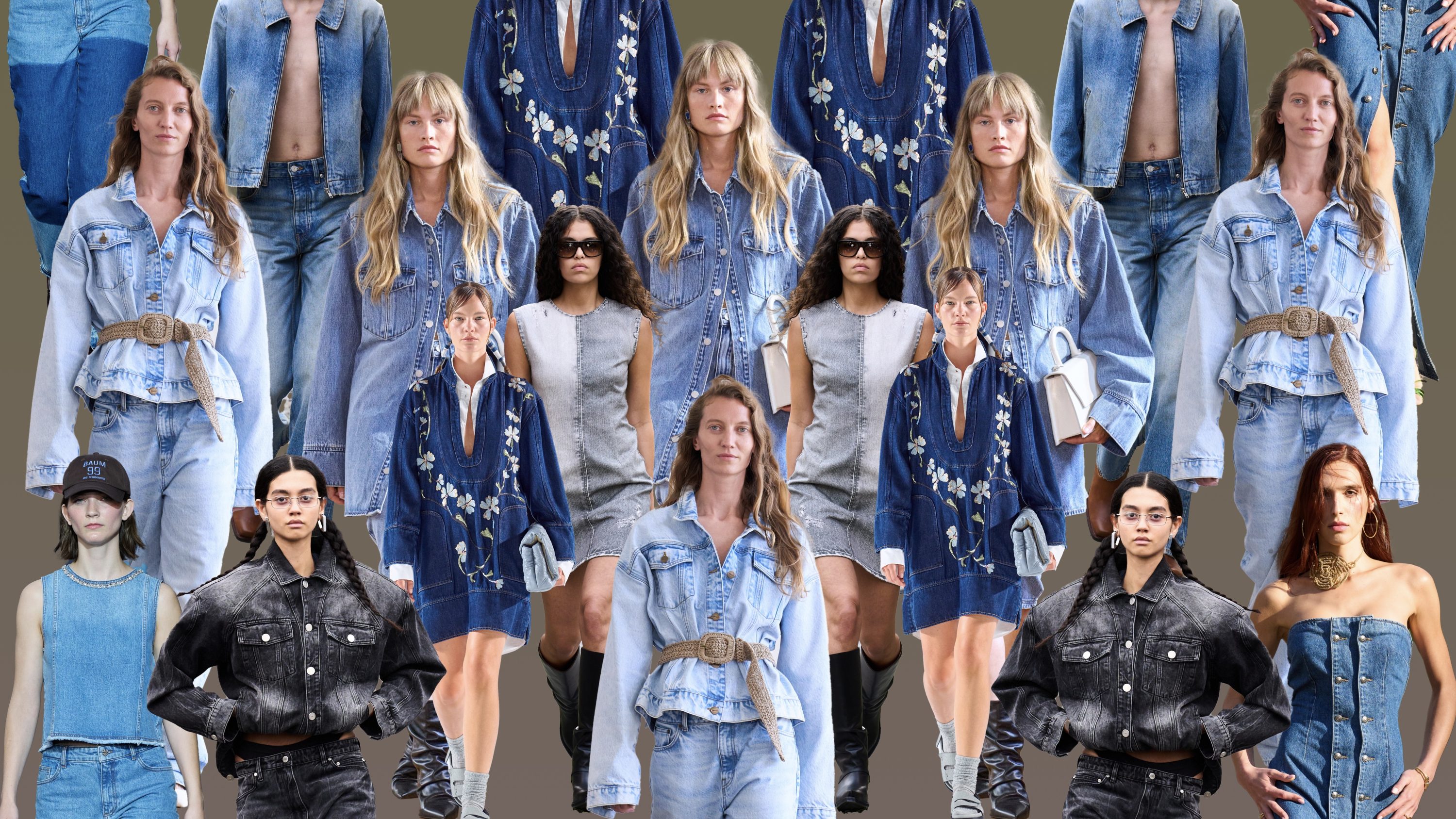
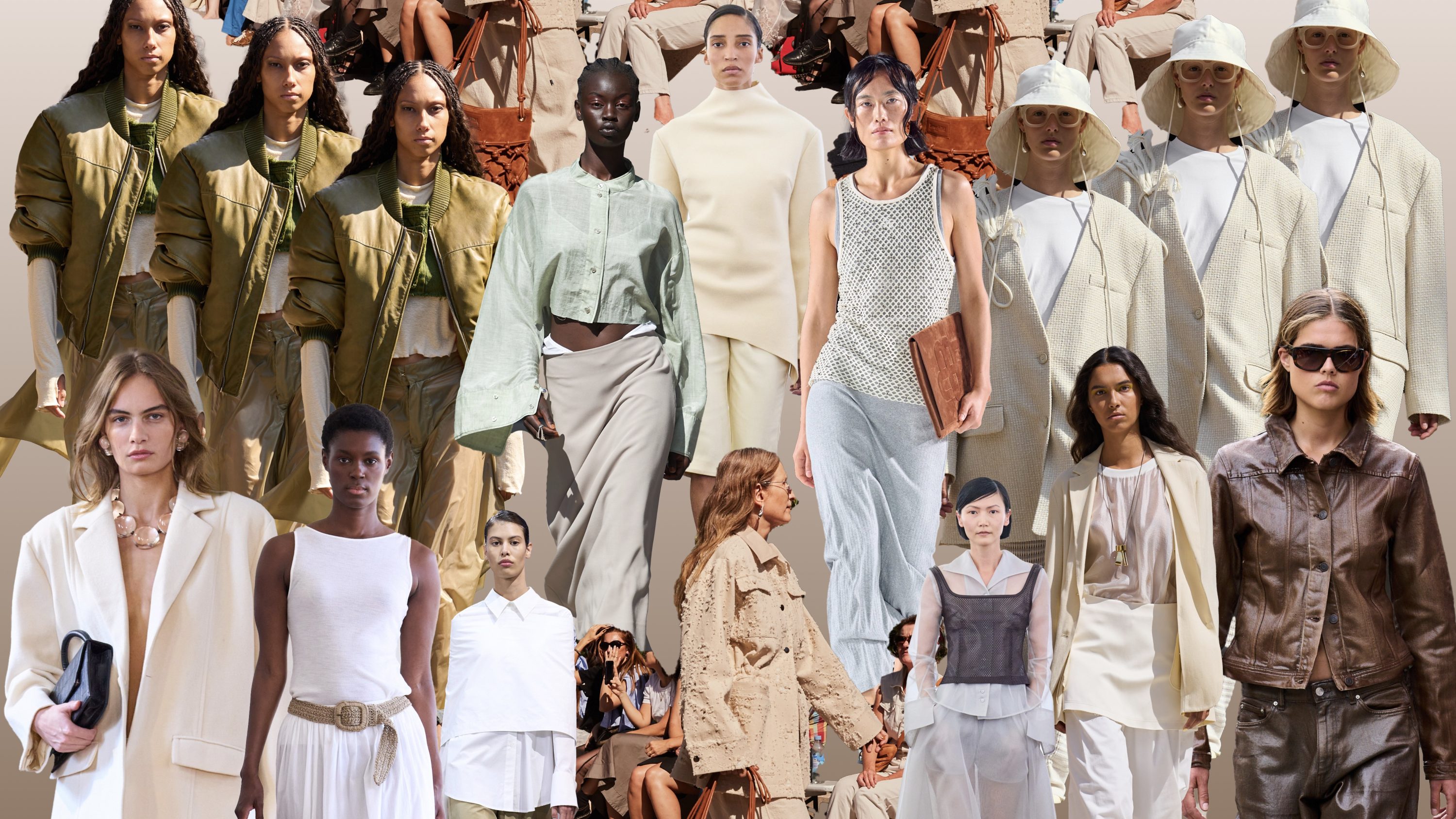
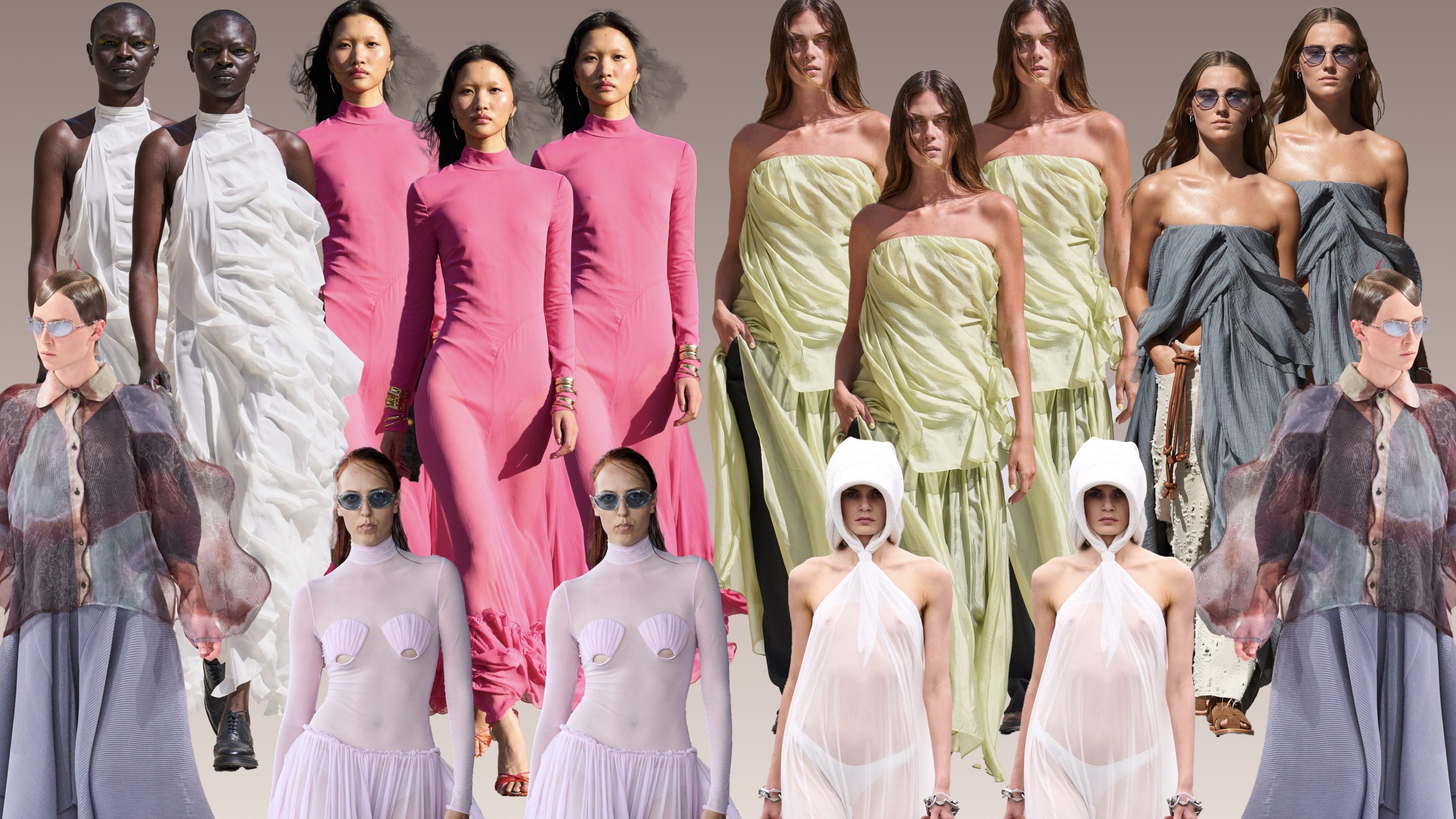
A Season of Cautious Optimism
The mood at CPHFW this season was one of cautious optimism. Despite the economic challenges that continue to impact the global fashion industry, there was a palpable sense of renewal and resilience. Designers are adapting, finding new ways to thrive in a changing world, and in doing so, they are reinvigorating the very essence of Scandinavian fashion.
Copenhagen Fashion Week remains a vital platform for innovation, inclusivity, and sustainability. As the world grapples with the complexities of modern life, the creativity and forward-thinking attitudes displayed in this season’s collections offer a glimpse of a brighter, more inclusive future for fashion—one where everyone has a place on the runway.
Street Style at Copenhagen Fashion Week
Copenhagen Fashion Week isn’t just about the runway—the city’s streets become a stage for a vibrant mix of Nordic charm and global style. This season, street style highlights an effortless blend of minimalism and bold experimentation, all with a strong focus on sustainability. Show-goers flaunt eco-friendly labels and vintage finds, pairing oversized blazers with tailored trousers and chunky, upcycled accessories.
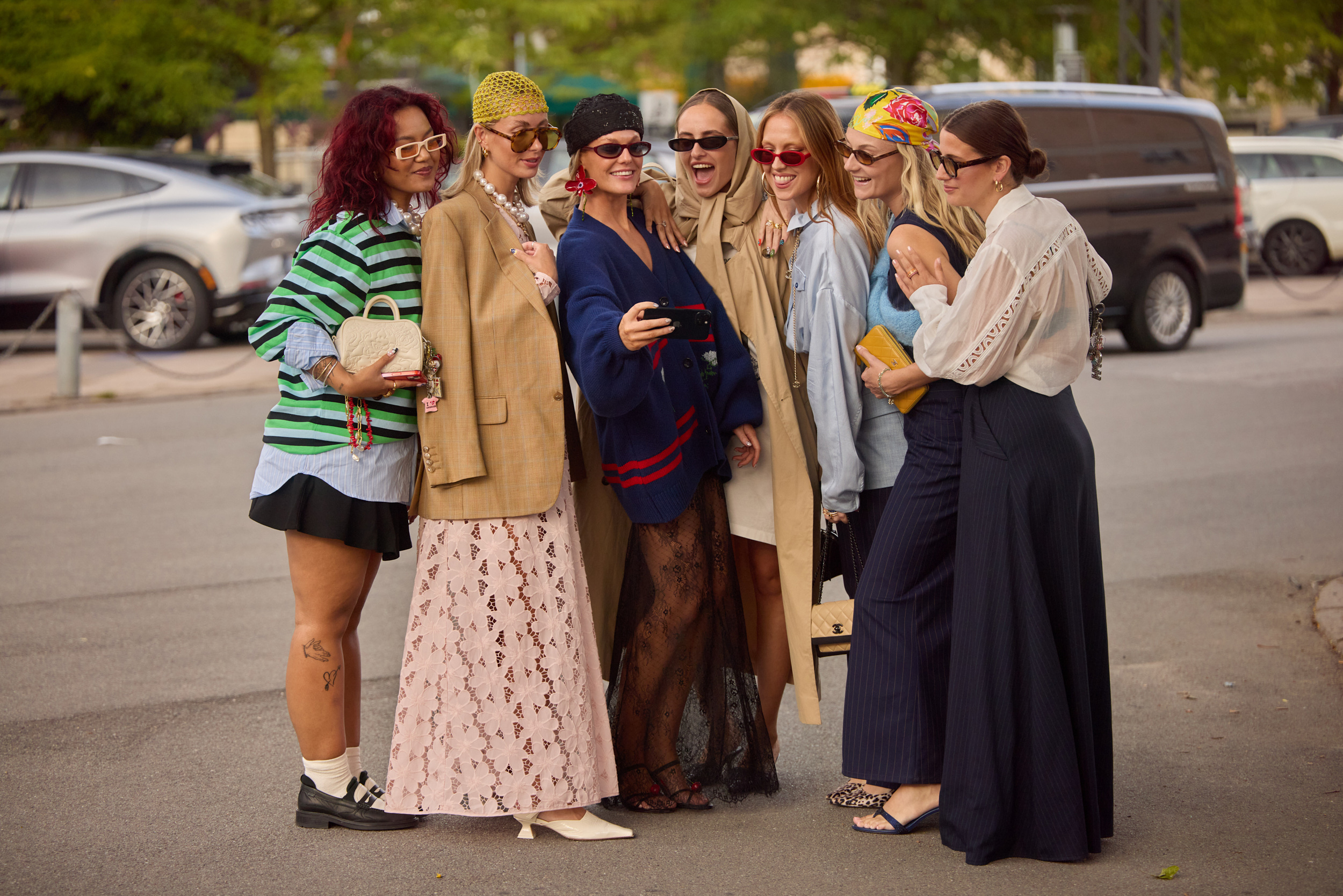
The color palette is a dynamic mix of muted tones like beiges and blues, contrasted with bursts of electric orange and vivid green. Layering is key, with trench coats and knitwear seamlessly integrated for both style and practicality. Footwear ranges from chunky sneakers to sleek loafers, emphasizing the balance of function and fashion.
Cycling culture also influences the look, with practical pieces like crossbody bags and relaxed-fit pants. This fusion of lifestyle and fashion defines Copenhagen’s street style: effortlessly chic, practical, and rooted in conscious living.
Key Shows
Copenhagen Fashion Week for Spring/Summer 2025 has been a vibrant display of creativity and forward-thinking fashion. From iconic brands making a strong return to emerging designers debuting their collections, this season offered a rich tapestry of styles that reflect the evolving nature of Scandinavian fashion.
OpéraSPORT Held in the picturesque Exillion Garden, OpéraSPORT’s show was a celebration of timeless elegance set against the backdrop of Italian Renaissance and French Baroque influences. The collection featured vibrant floral colors and sophisticated prints, including a new quilt design, all crafted from recycled or organic fabrics. Feminine touches like frills, stripes, and ruching were paired with leather accessories and jewelry from AKVA, creating a look that was both classic and fresh.
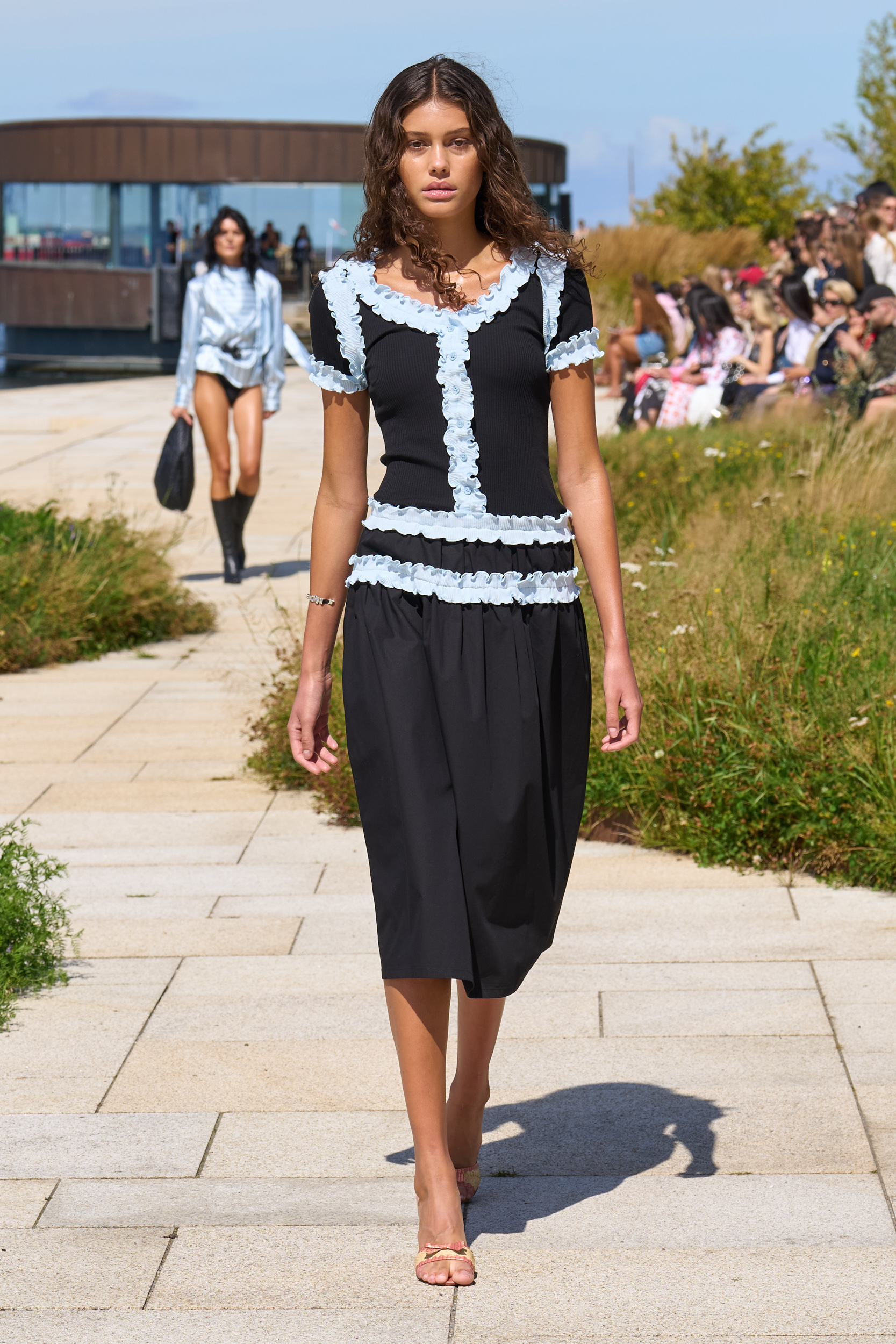
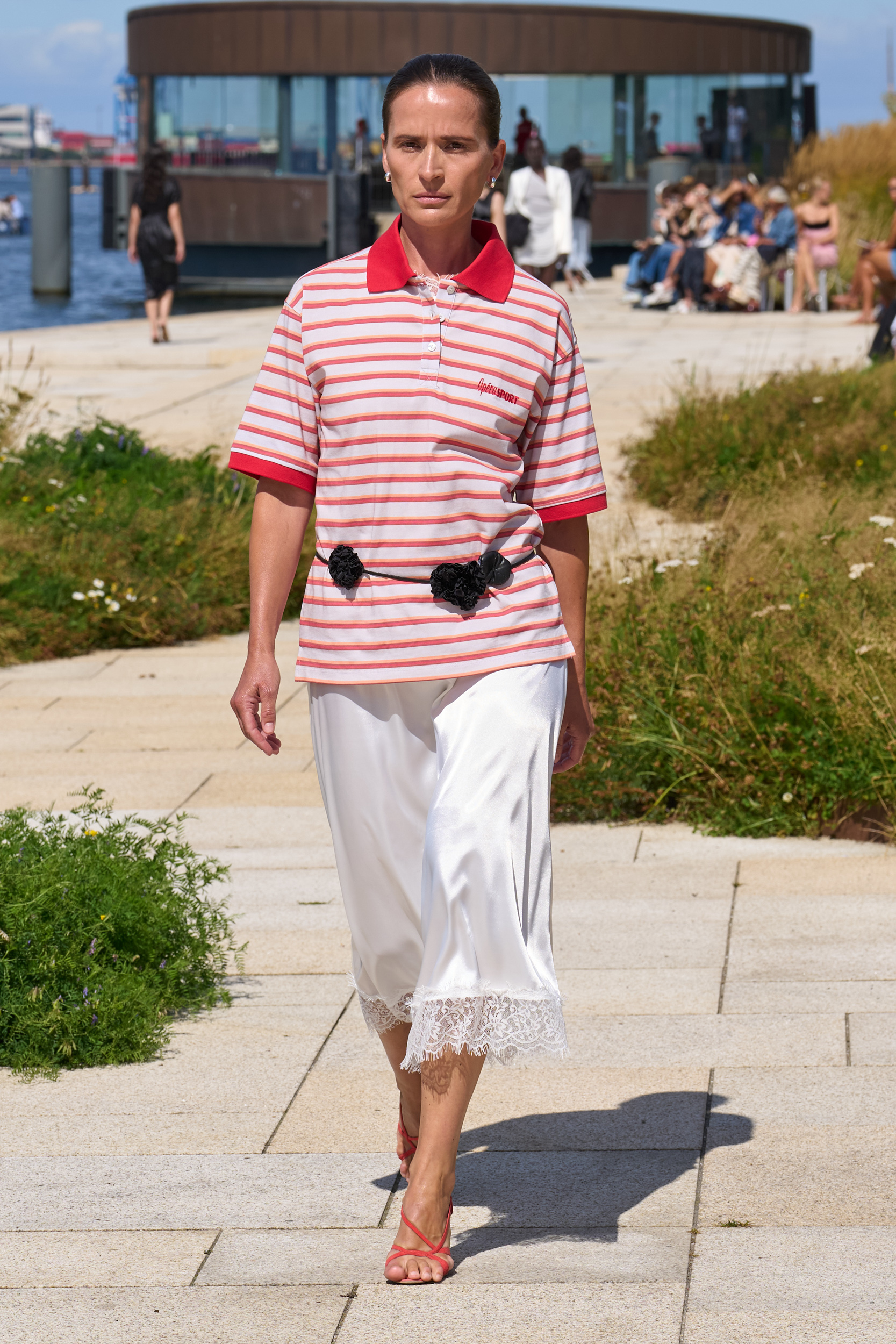
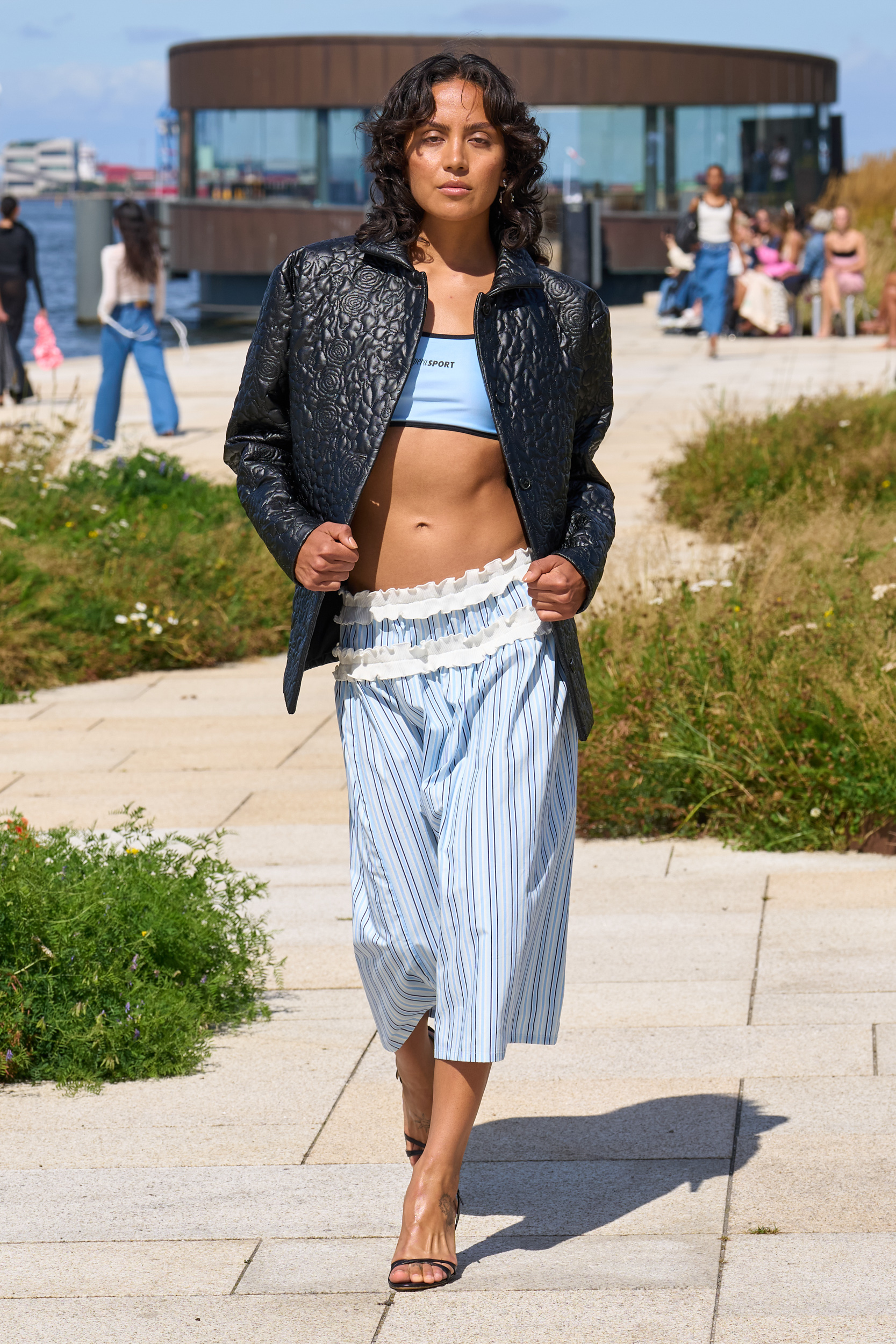
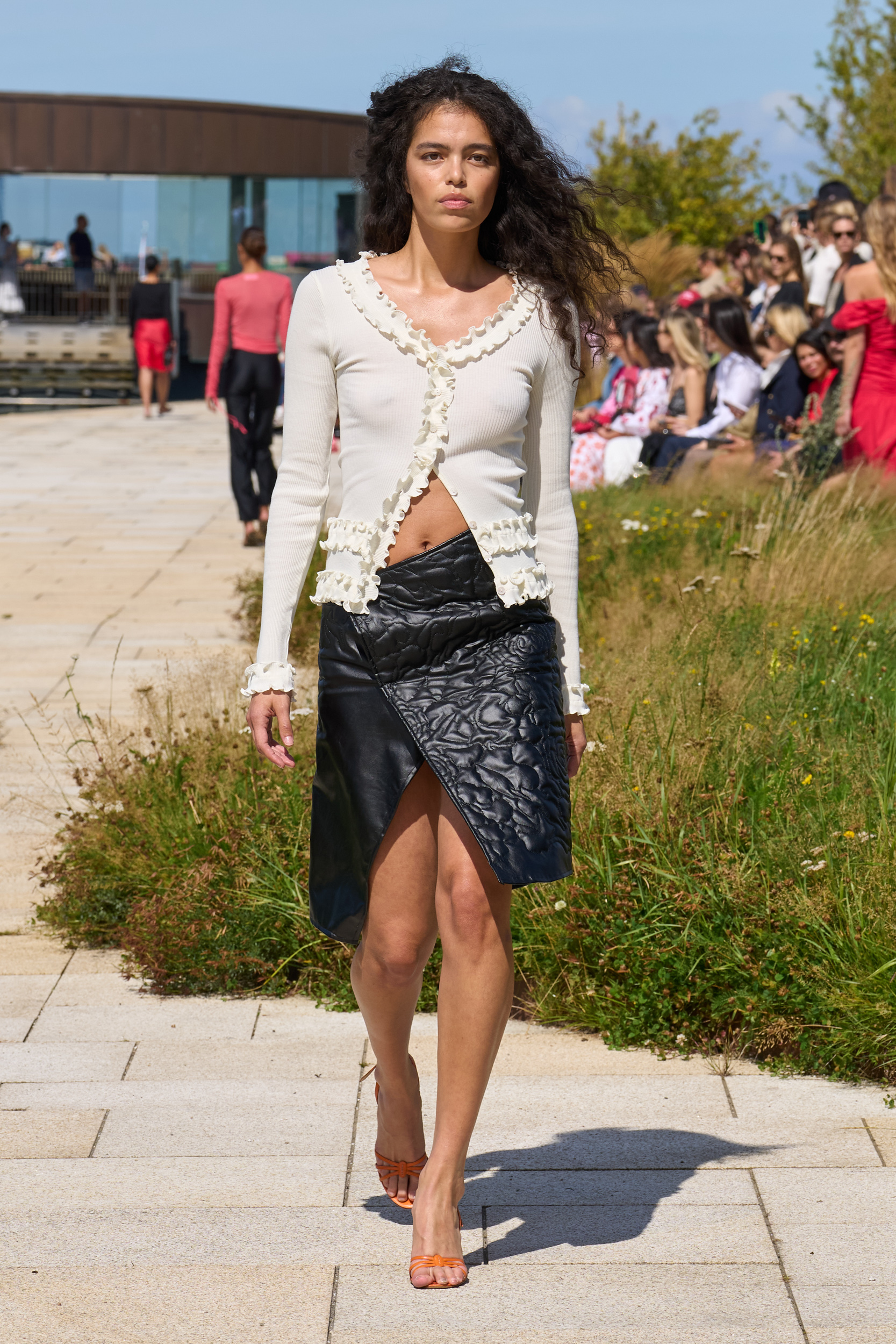
A. Roege Hove After a brief hiatus, knitwear brand A. Roege Hove made a powerful return to the CPHFW schedule. Designer Amalie Røge Hove showcased her signature technical, body-conscious knitwear, presenting a collection that was both futuristic and tactile. The SS25 show emphasized layered styling and opaque pieces, complemented by functional black heels, all set against a backdrop of pared-back beauty that highlighted the Scandi aesthetic.
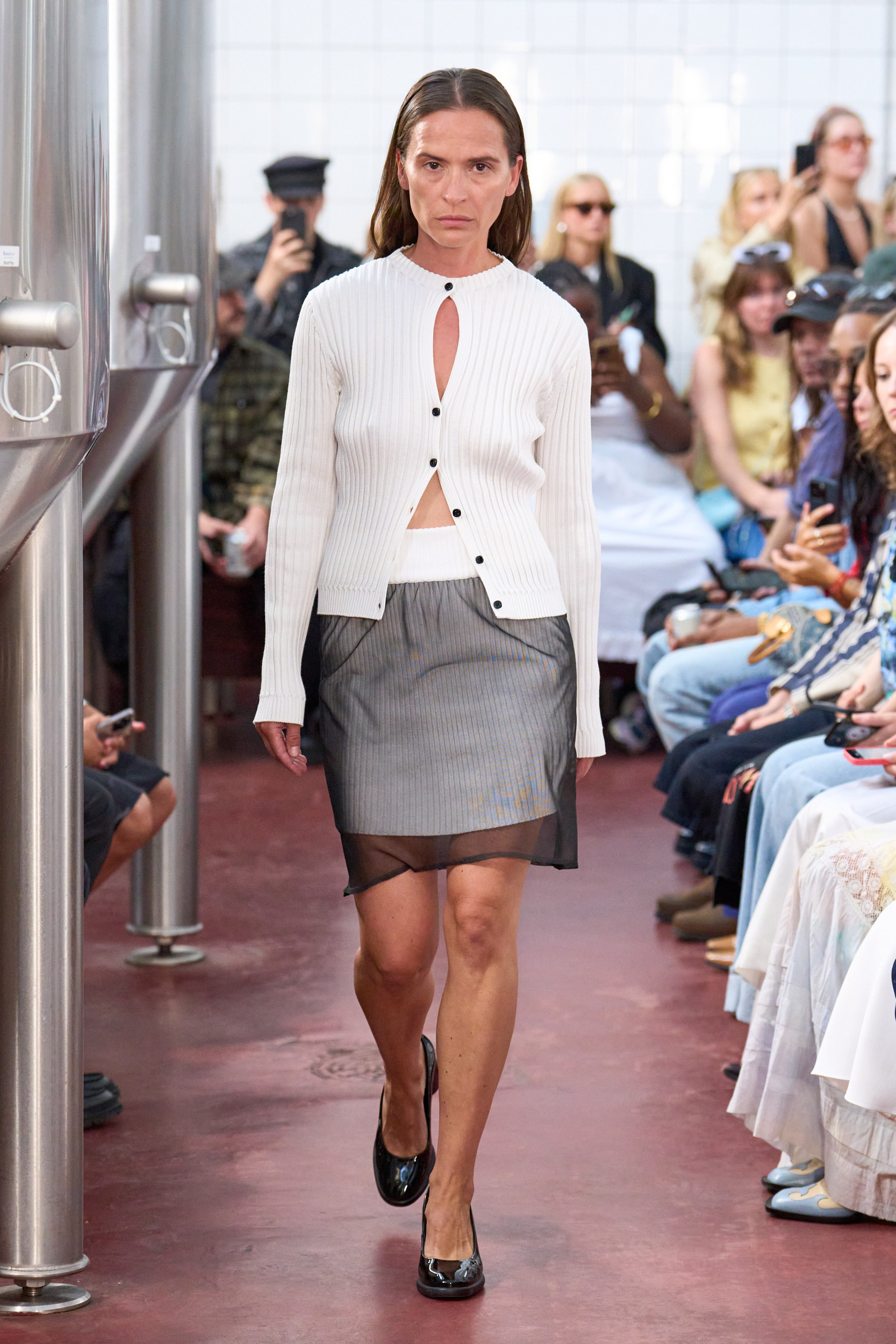
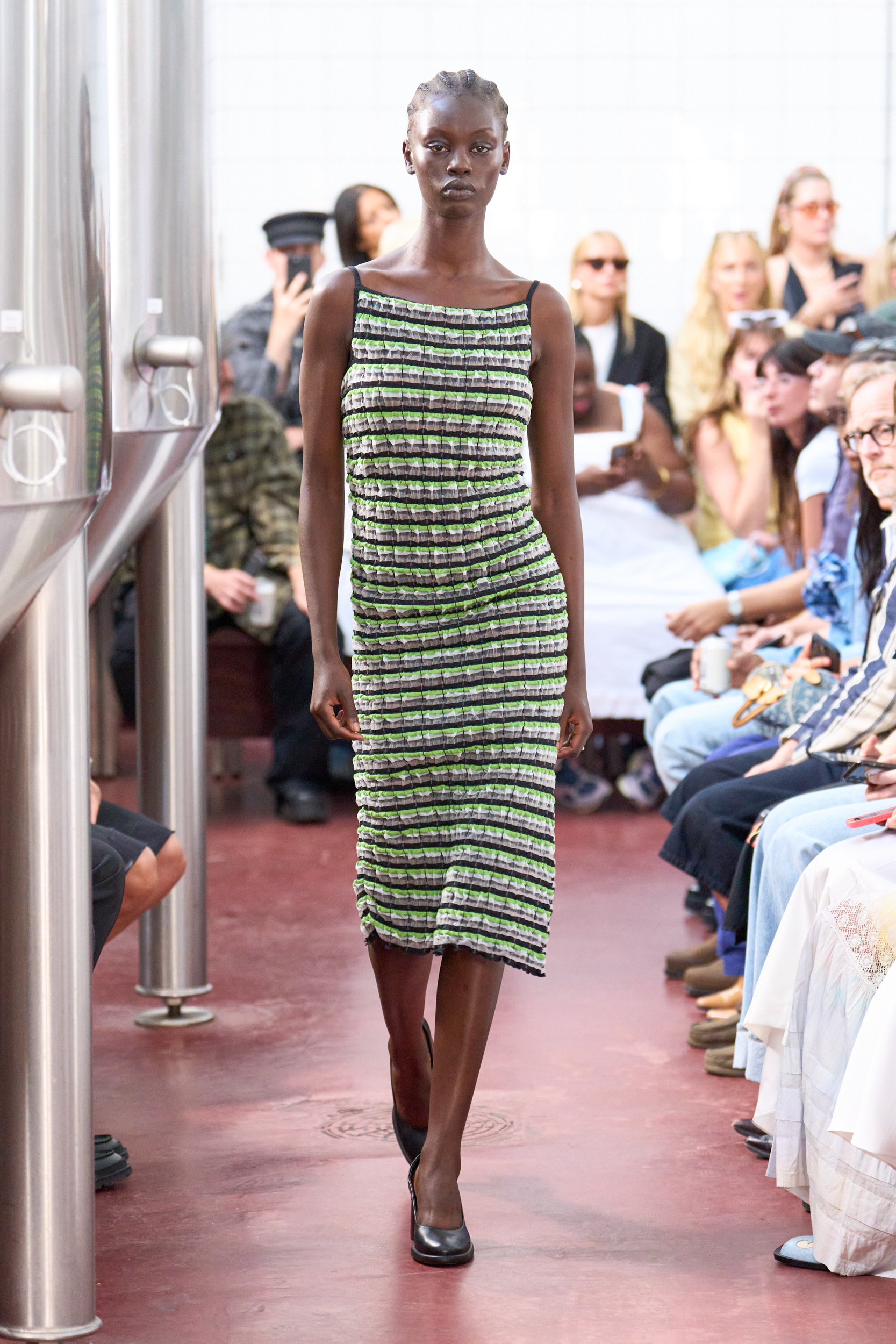
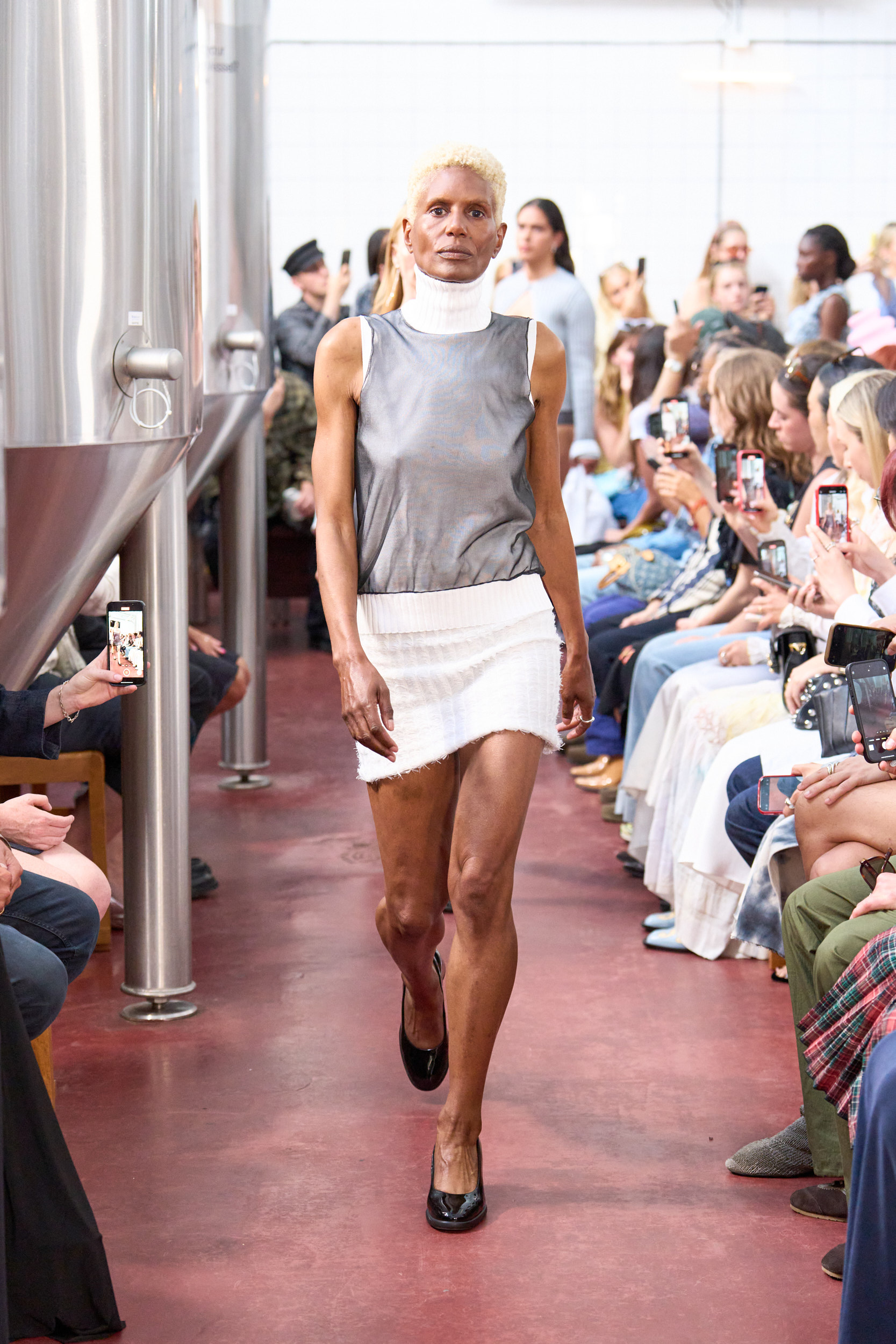
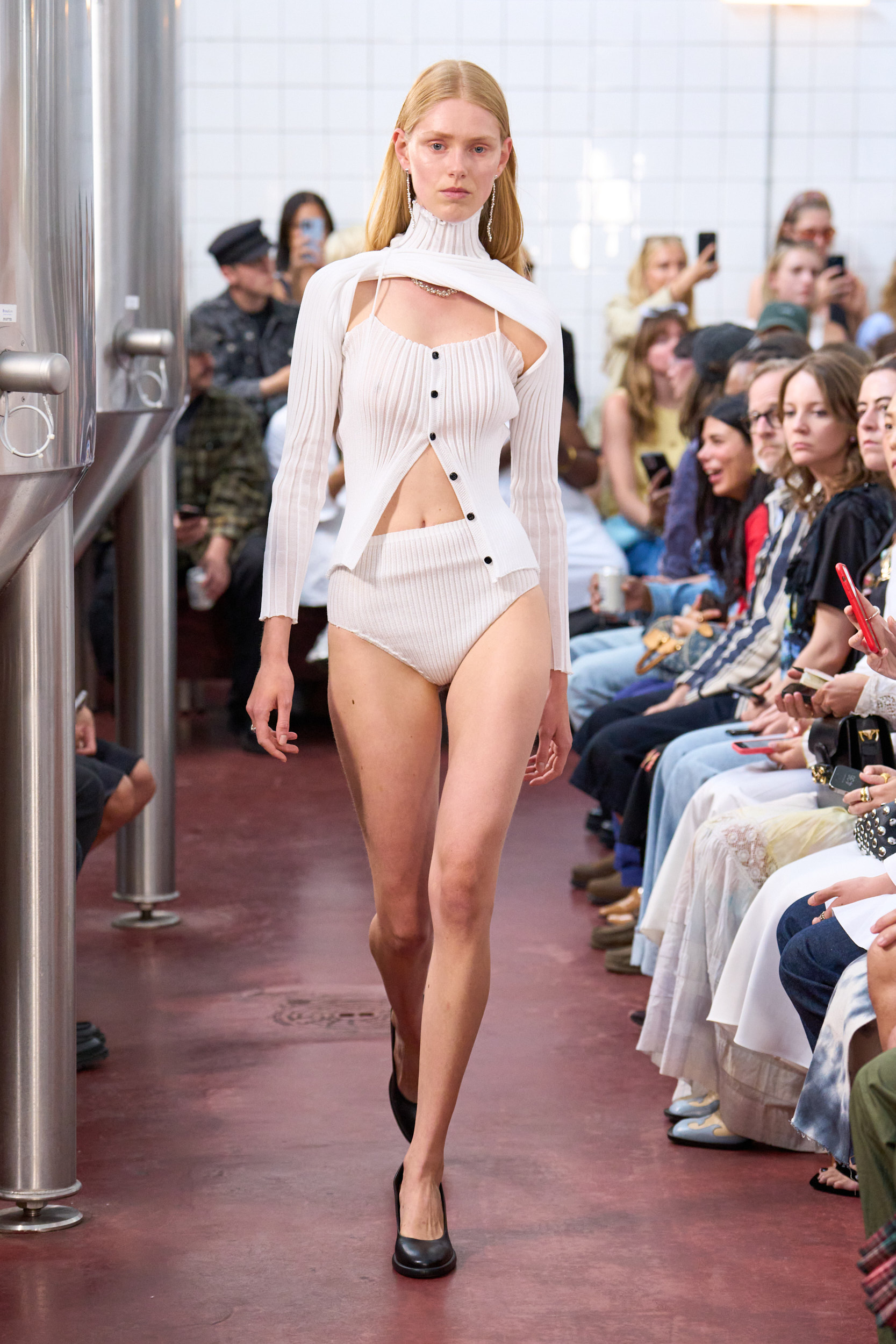
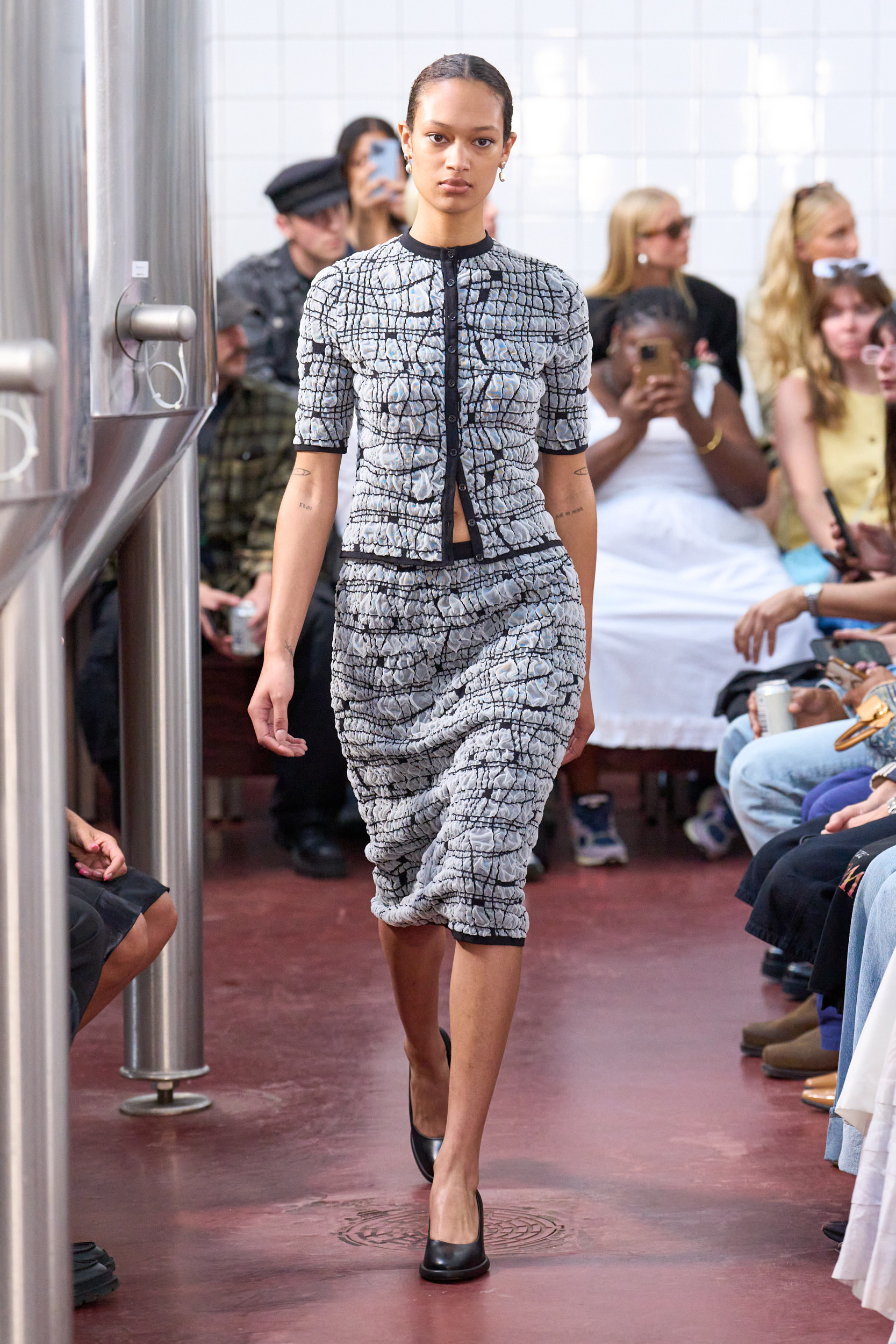
Cecilie Bahnsen Though not part of the official runway schedule, Cecilie Bahnsen expanded her whimsical universe with the release of her Resort Women Off Season 2025 collection. Staying true to her vision of modern femininity, Bahnsen’s collection featured neutrals and diaphanous silhouettes that blend poetry with practicality, continuing to redefine Scandinavian couture with her everyday approach to high fashion.
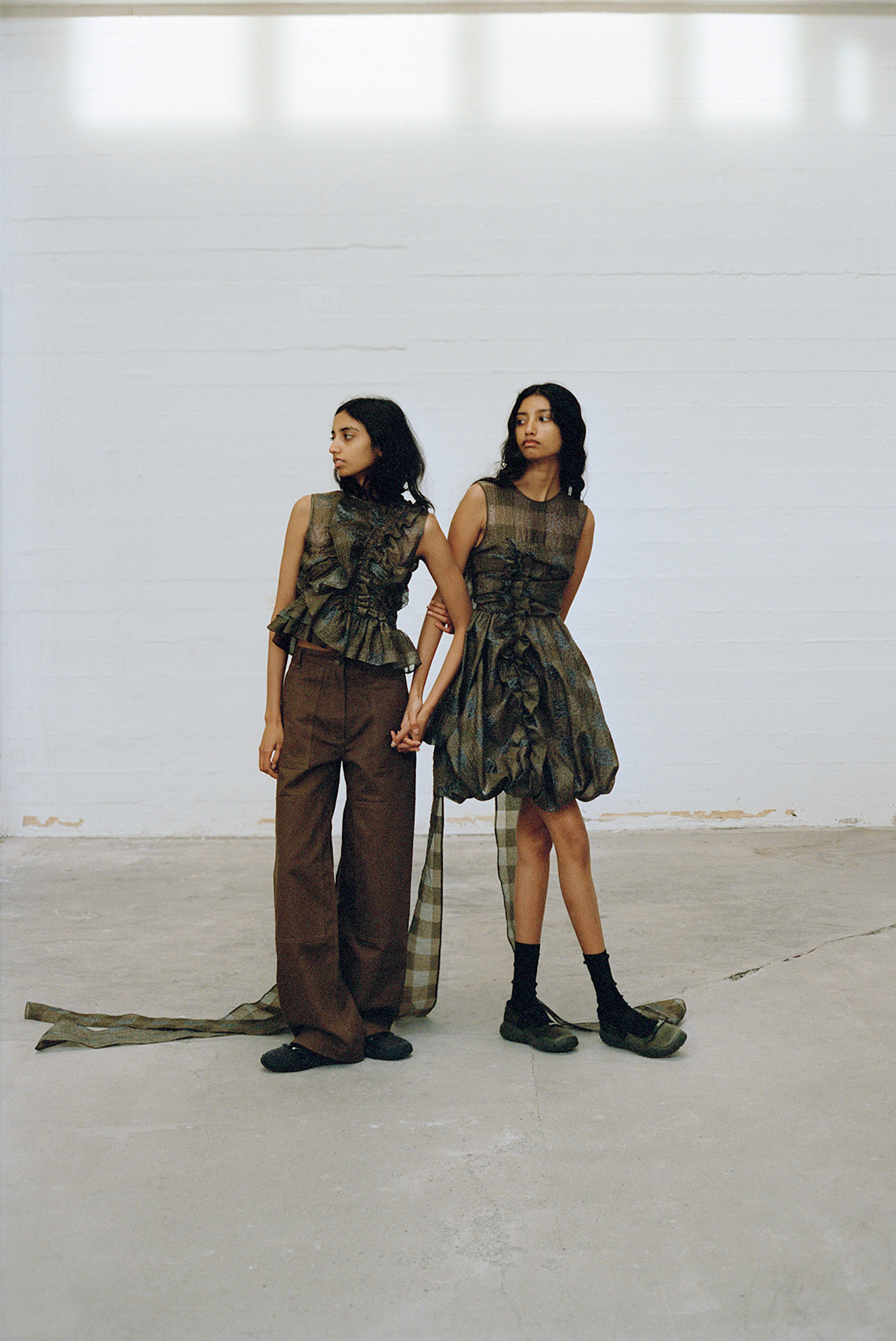
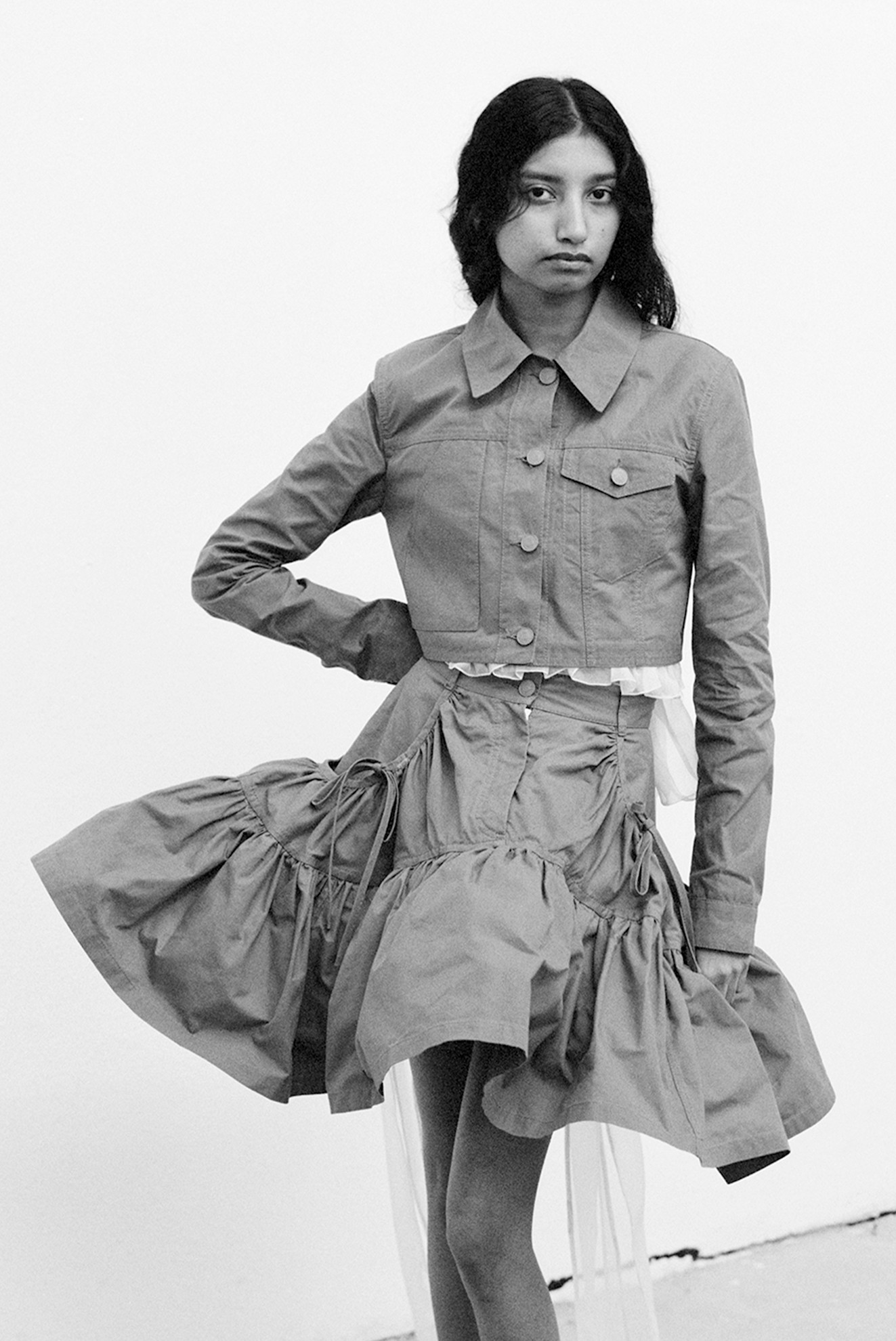
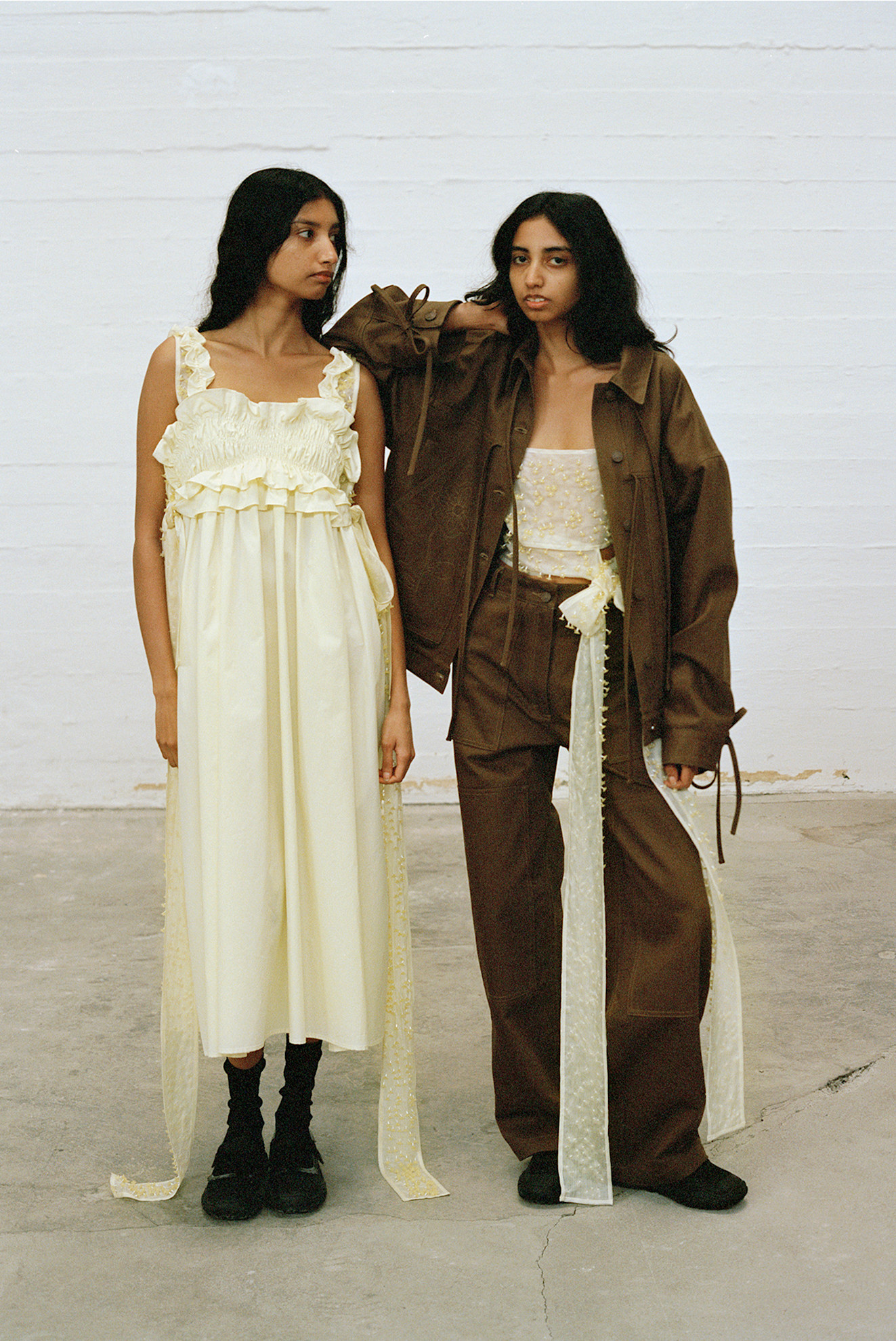
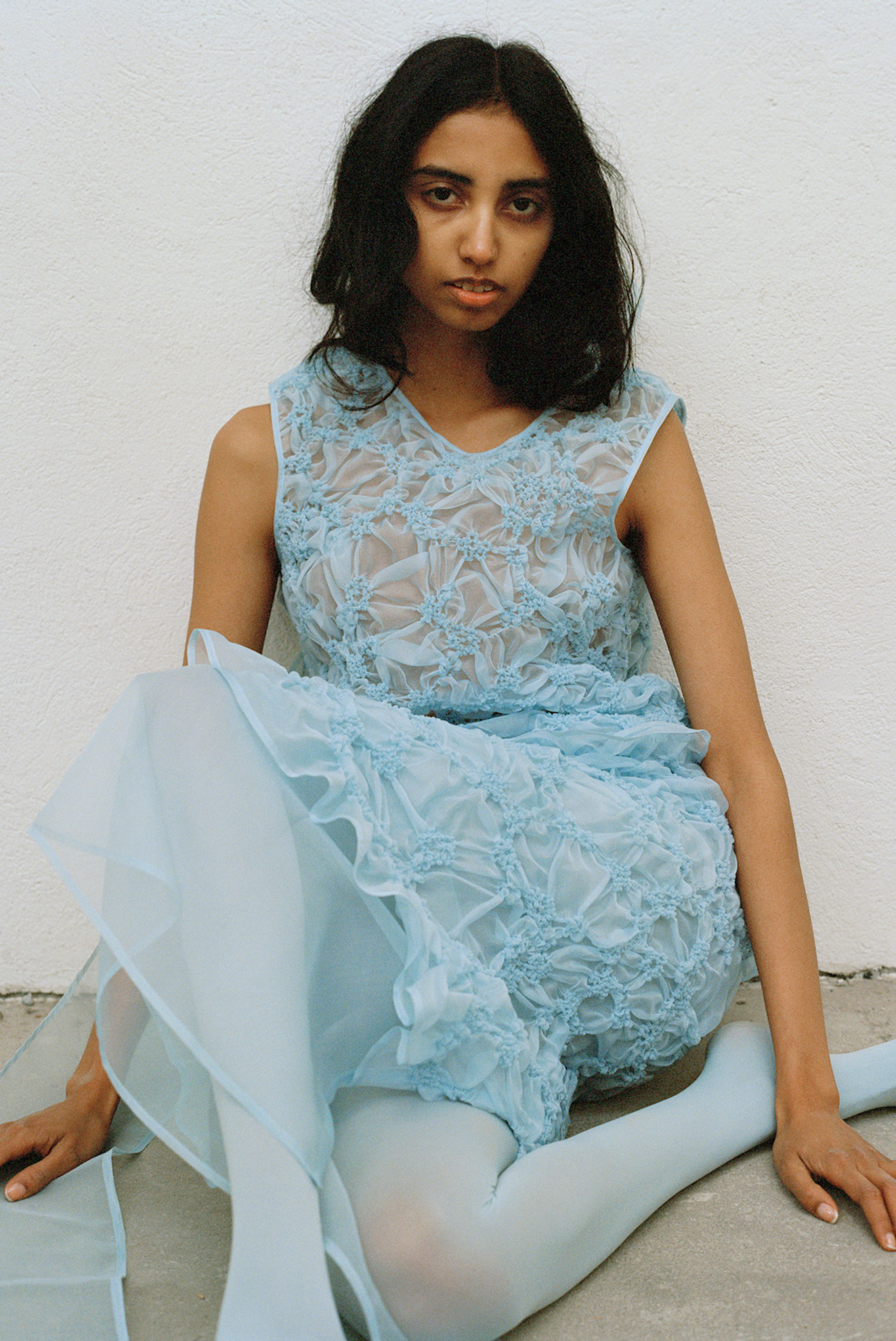
Ásta Fanney The Icelandic Central Saint Martins graduate drew inspiration from the poem “River & Sugardusk” for her Ready-to-Wear SS25 collection, “Simulation Swan.” This show, which verged on performance art, featured models moving through dynamic choreography, dressed in garments crafted from deadstock materials and organic fabrics. The collection’s organic shapes, voluminous sleeves, and earthy hues evoked a sense of fluidity and surrealism.
Marimekko Marimekko’s “Parade of Flowers” was a vibrant explosion of color on the runway, blending archival prints with bright hues in a playful yet sophisticated manner. The collection revived classic floral abstractions and collaborated with artist Petra Börner, adding lively brushstrokes to the mix. Paired with Scandi-favorite white tube socks and neon ASICS sneakers, the collection was a refreshing take on Marimekko’s iconic style.
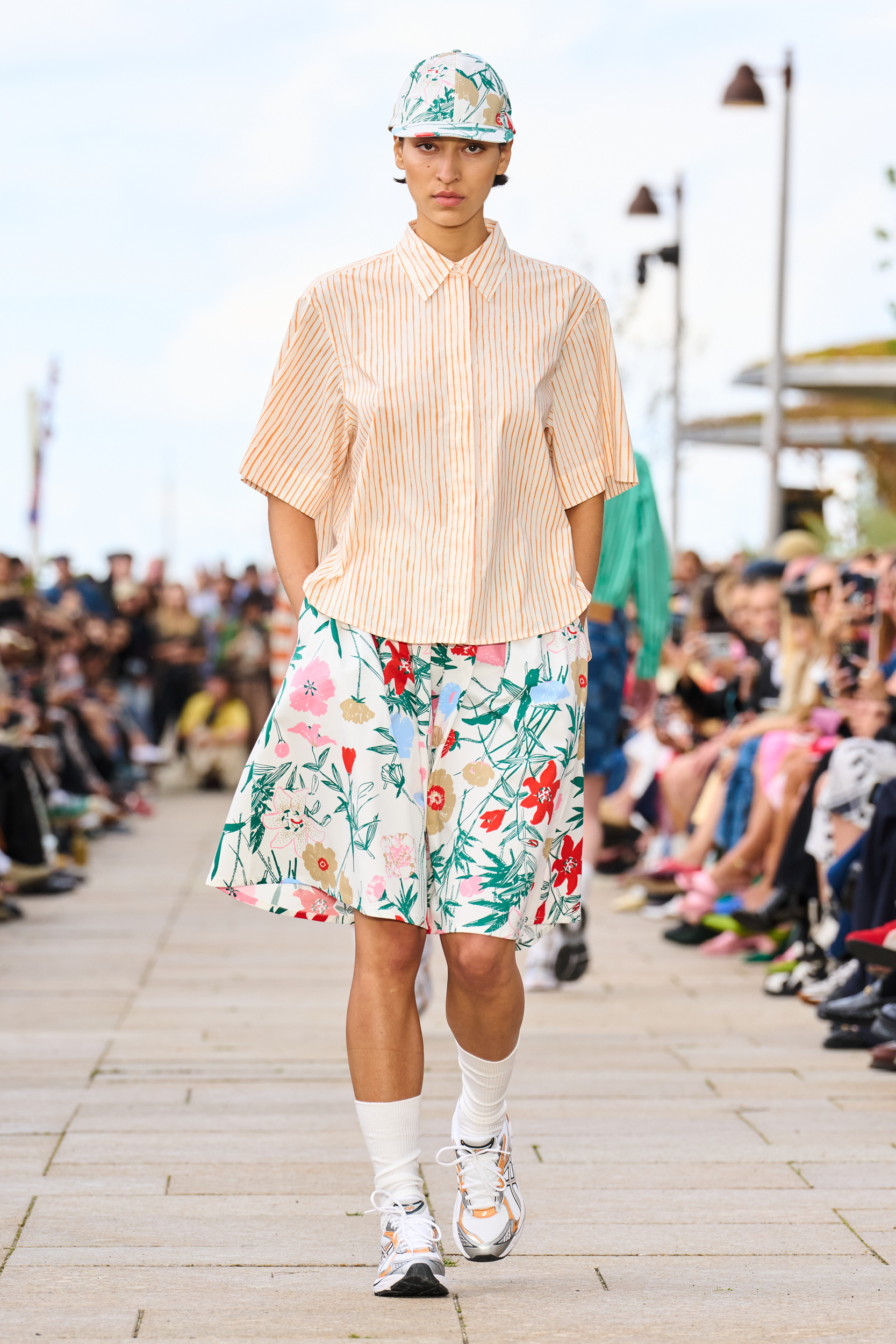
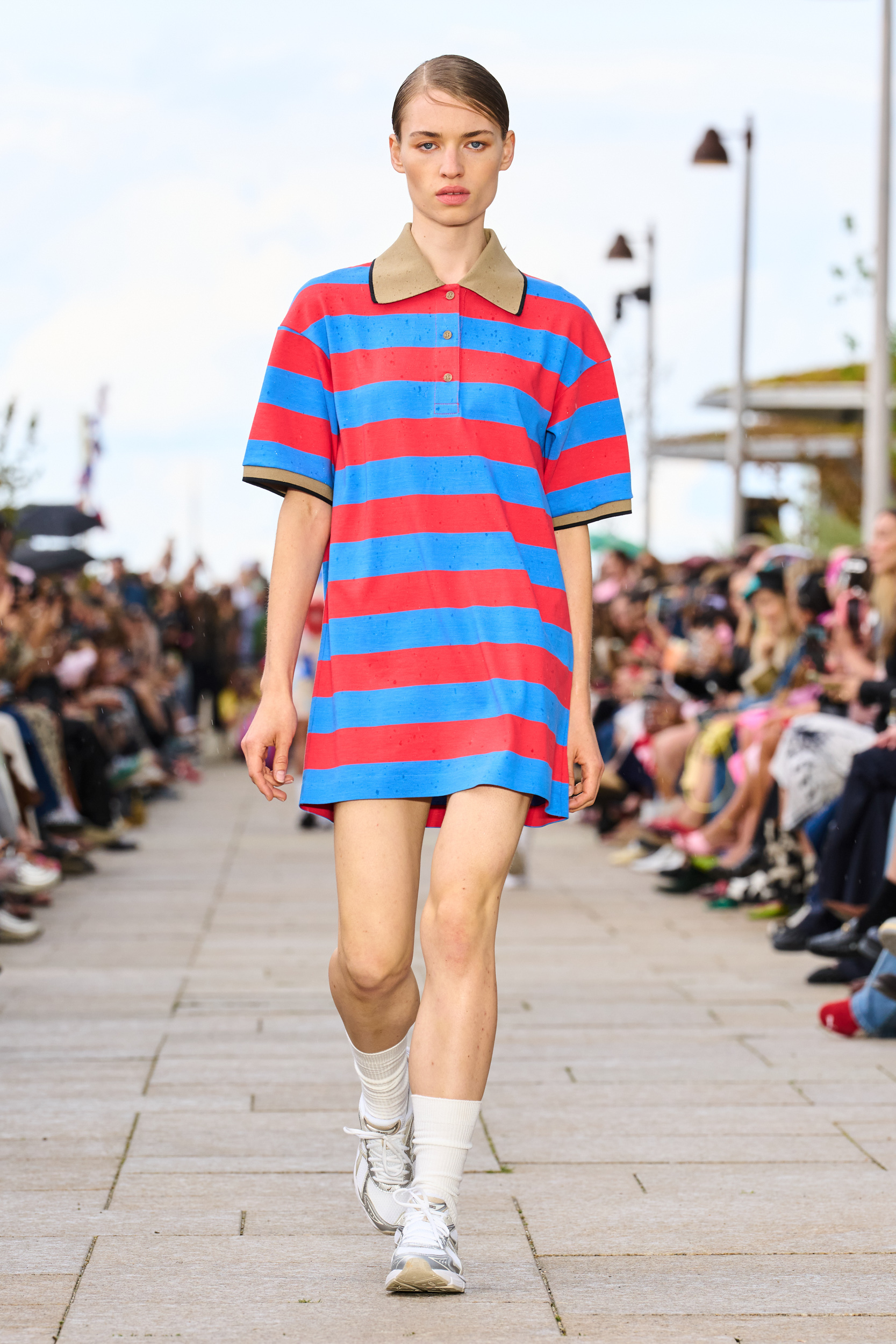
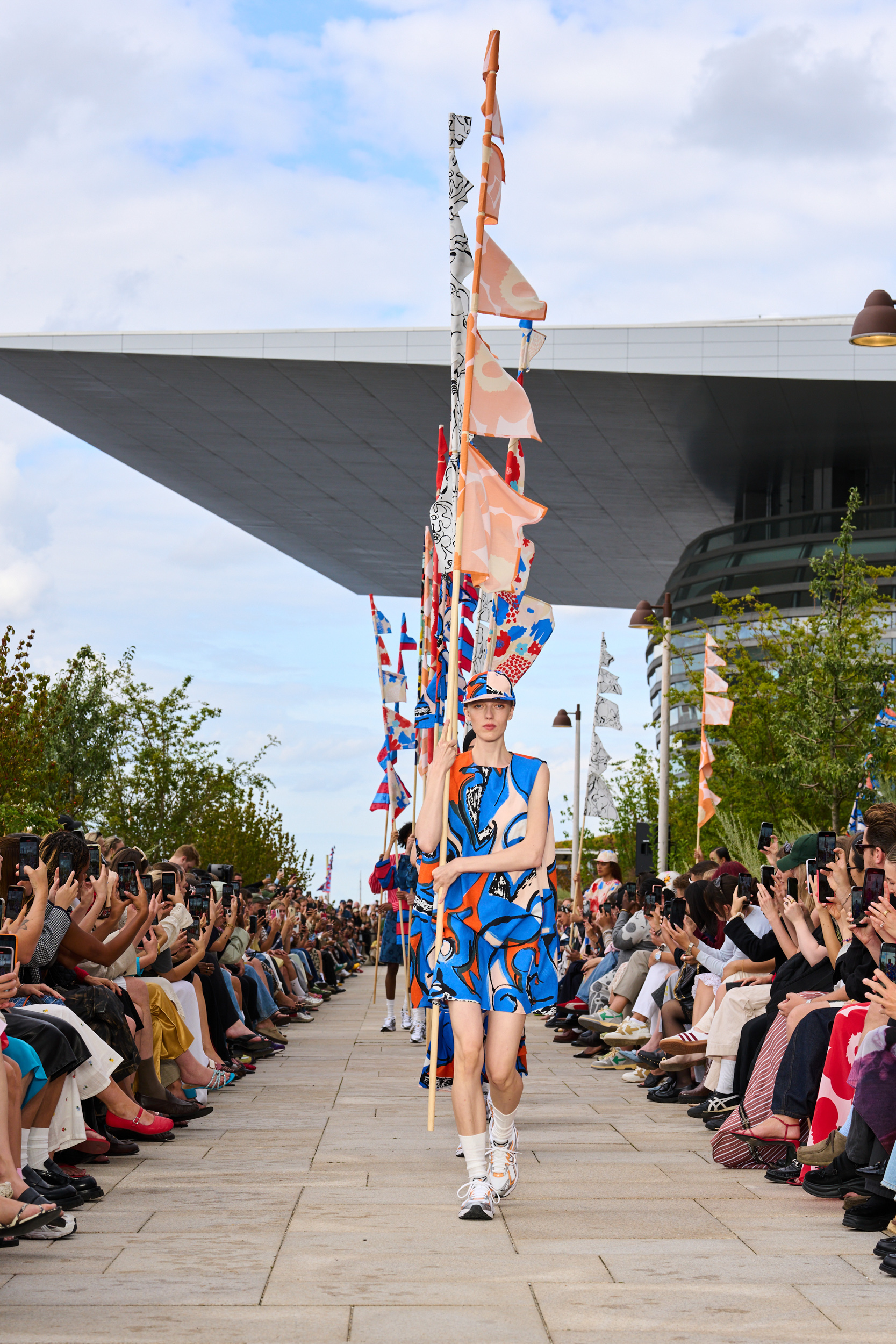
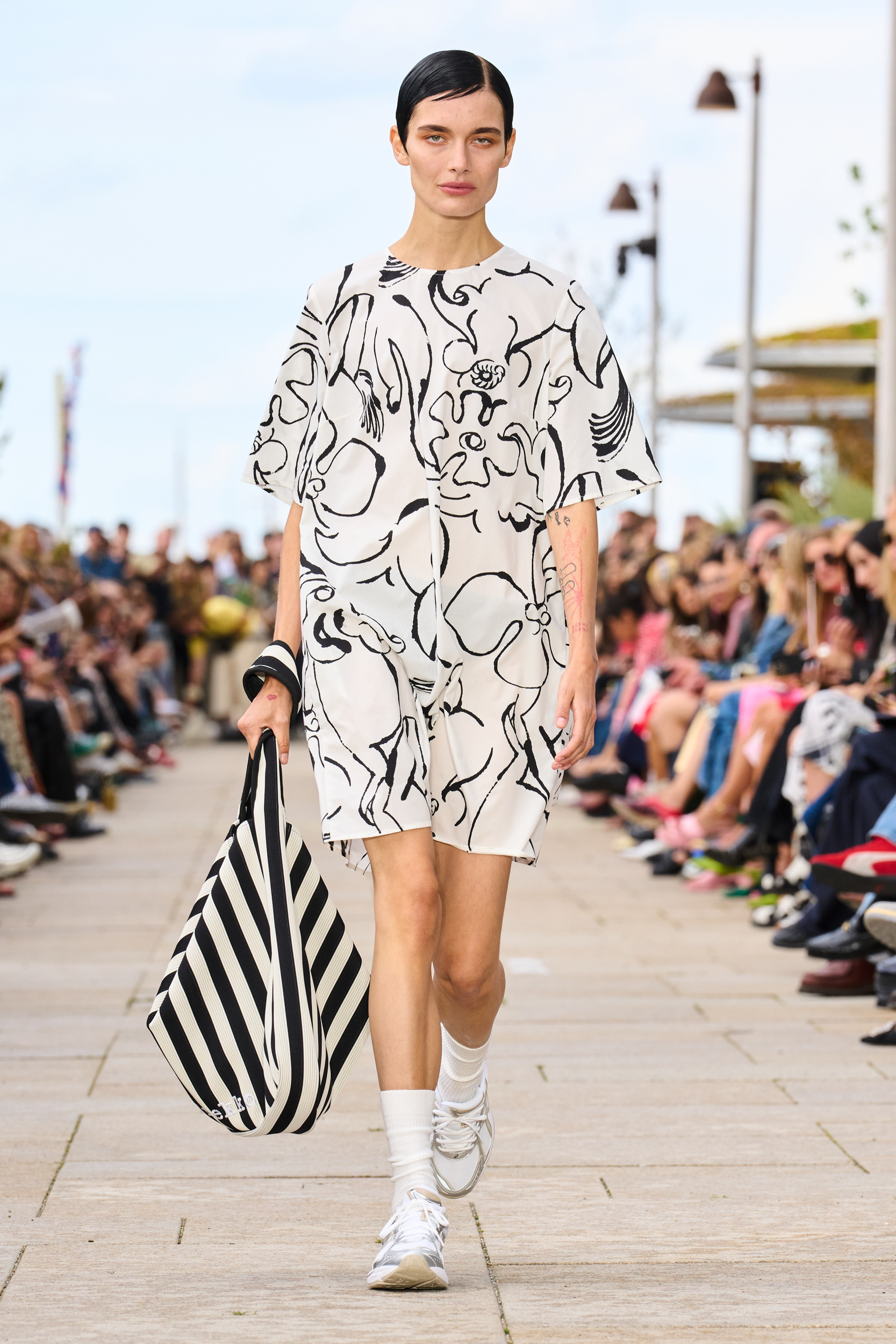
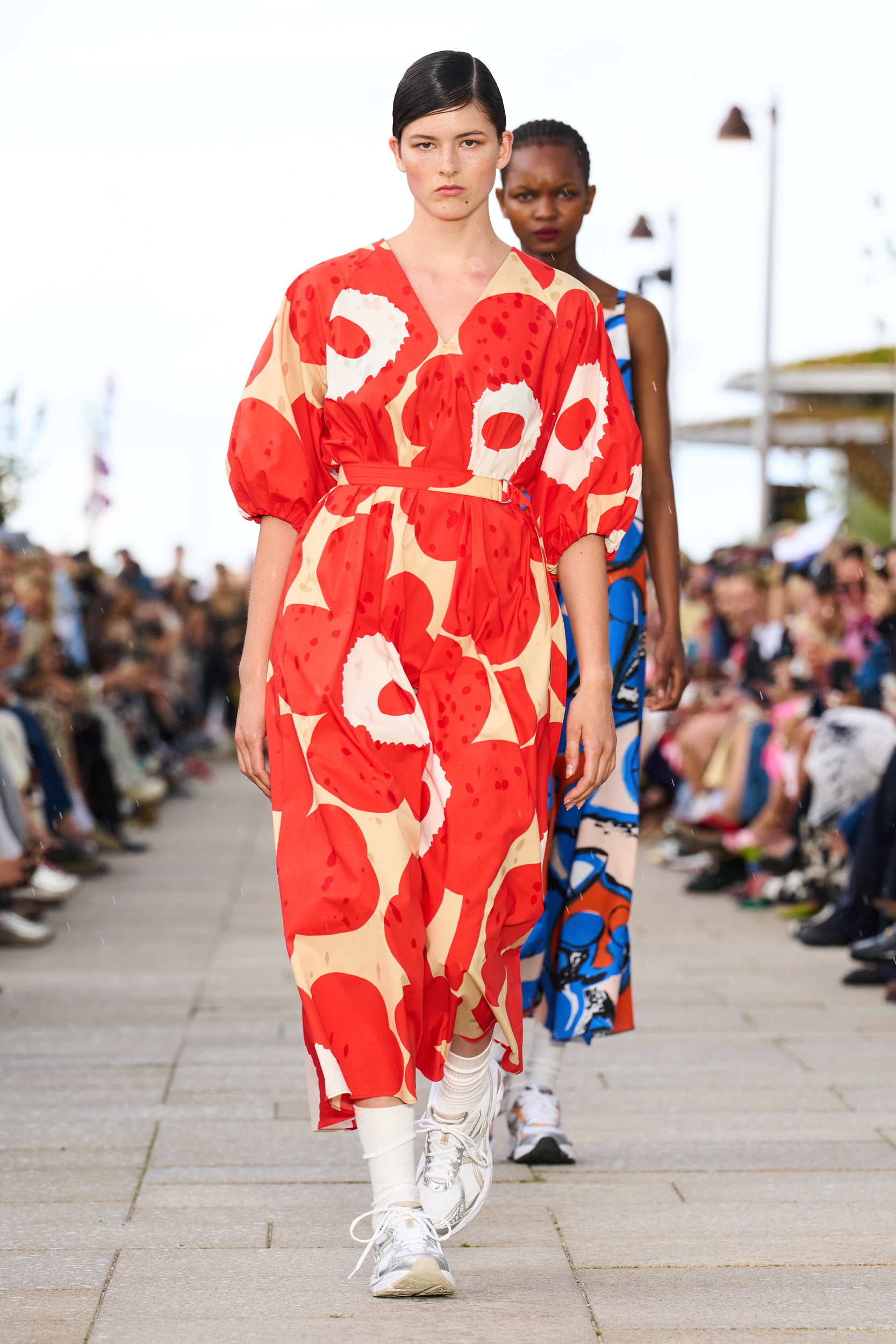
Sinéad O’Dwyer Winner of the Zalando Visionary Award 2024, Irish designer Sinéad O’Dwyer made her CPHFW debut at Opera Park. The show was a celebration of inclusivity and diversity, featuring models of various backgrounds and sizes, including one who walked the runway with her guide dog. O’Dwyer’s structured garments were masterfully panelled, woven, and ruched, paired with bubble-soled shoes and undergarments from Savage x Fenty, making a strong statement on modern fashion.
ROTATE Birger Christensen Closing out Copenhagen Fashion Week, ROTATE presented their SS25 collection in the manicured gardens of Copenhagen Royal Library. Designers Thora Valdimars and Jeanette Madsen showcased a series of party-ready looks with a sophisticated edge, featuring sparkly fringed garments, capri pants, rompers, and crocheted sets. The collection was elevated with custom jewelry pieces, including a maxi dress adorned with 2000 Pandora Timeless Silver Tennis bracelets, making it a standout moment of the week.
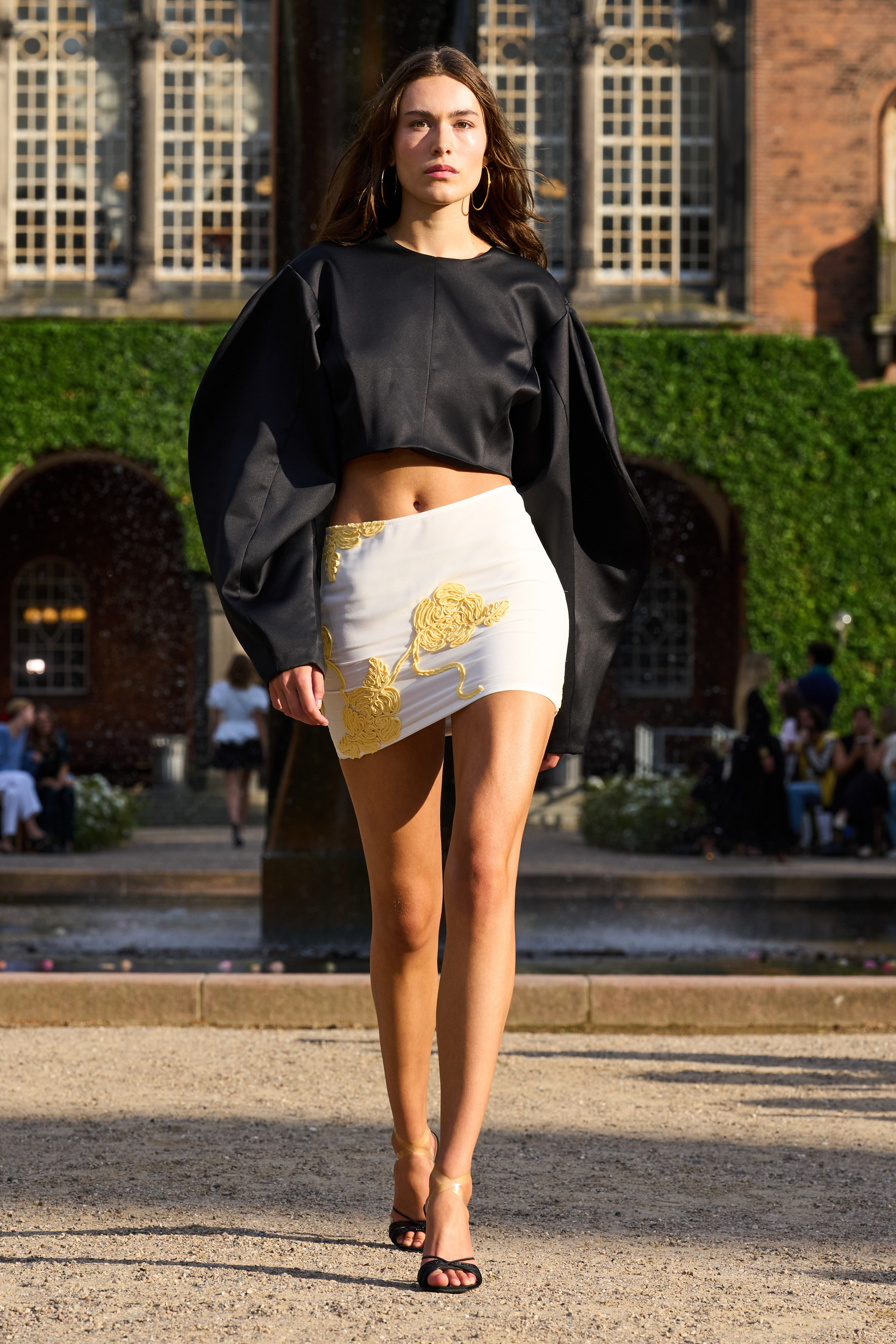
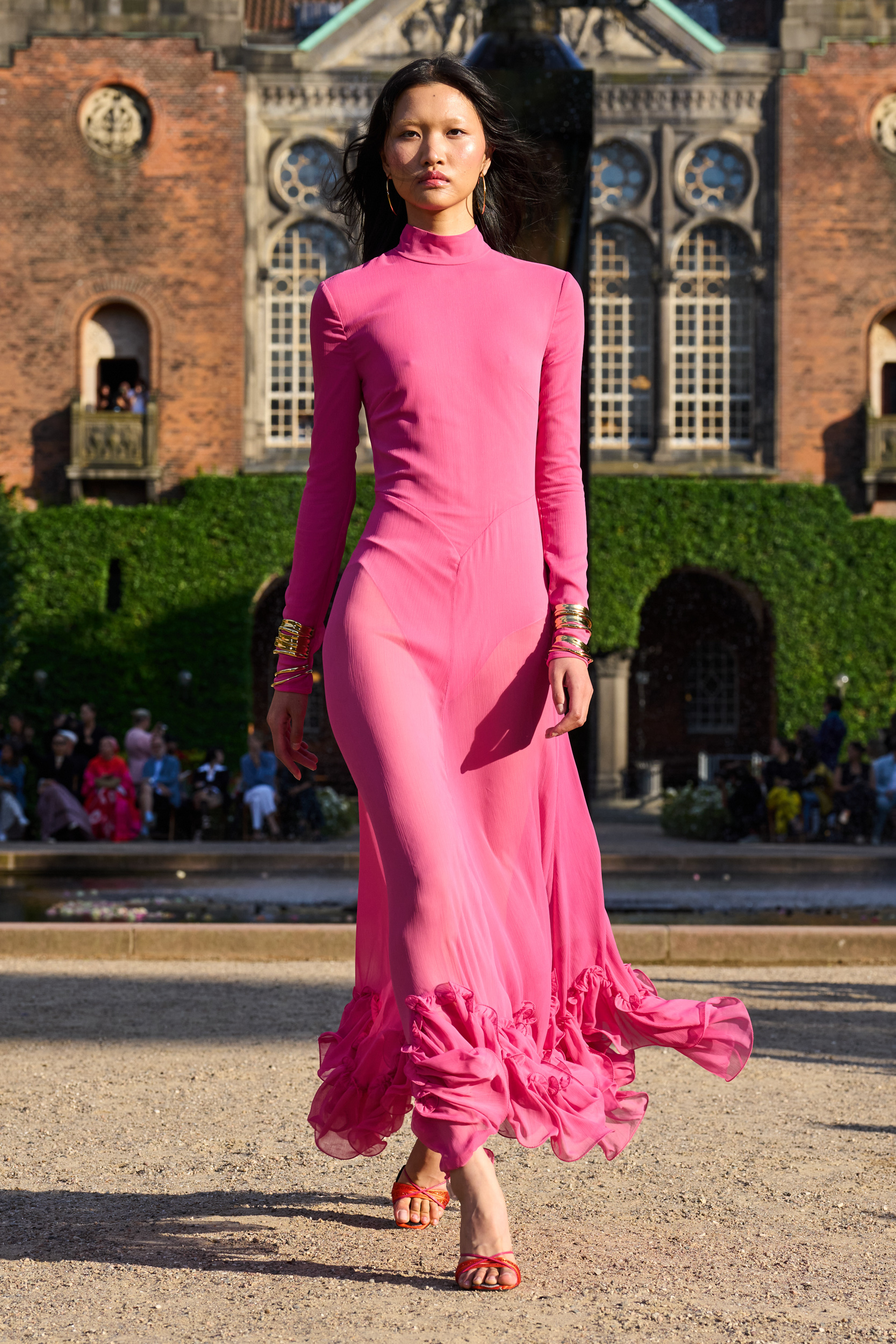
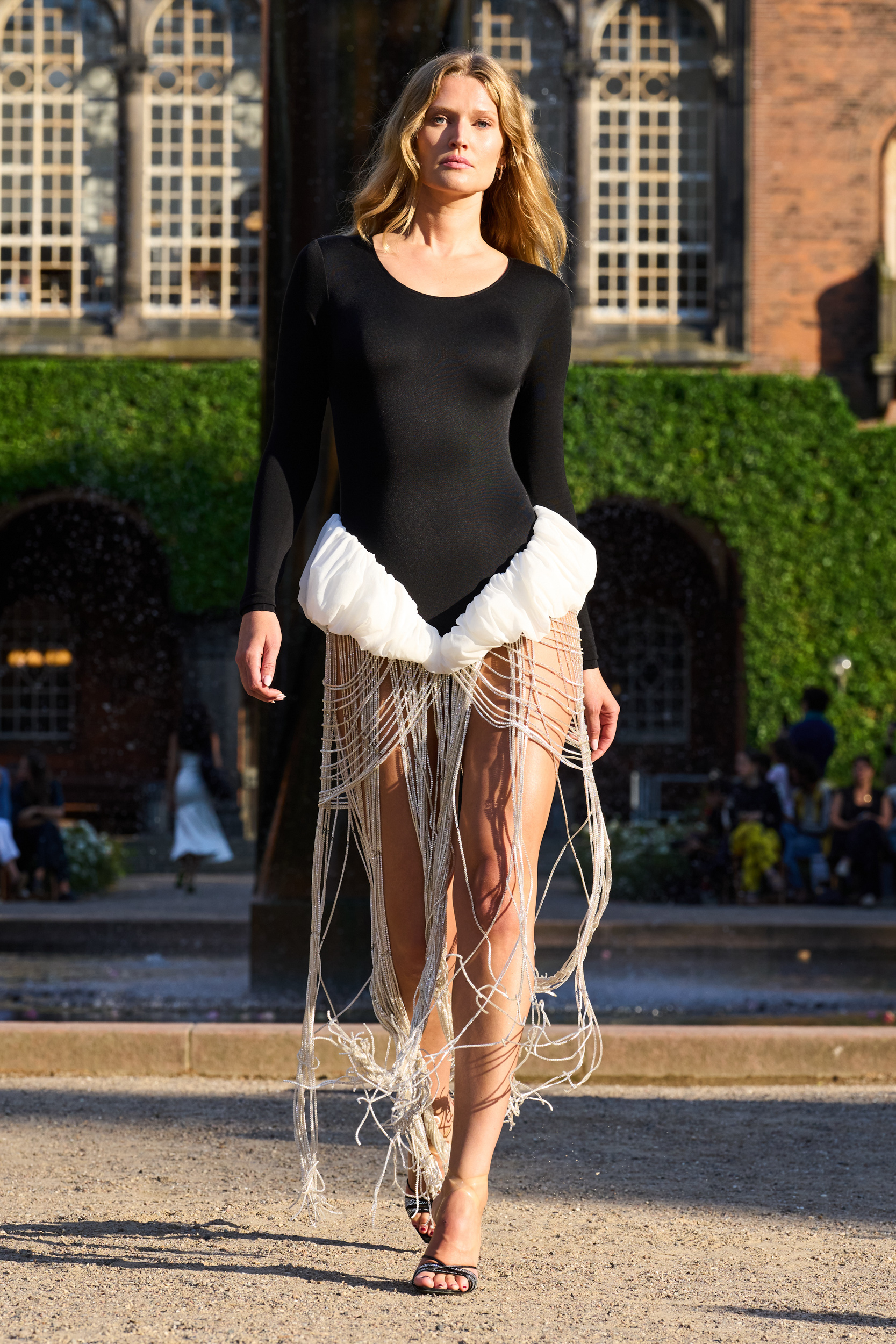
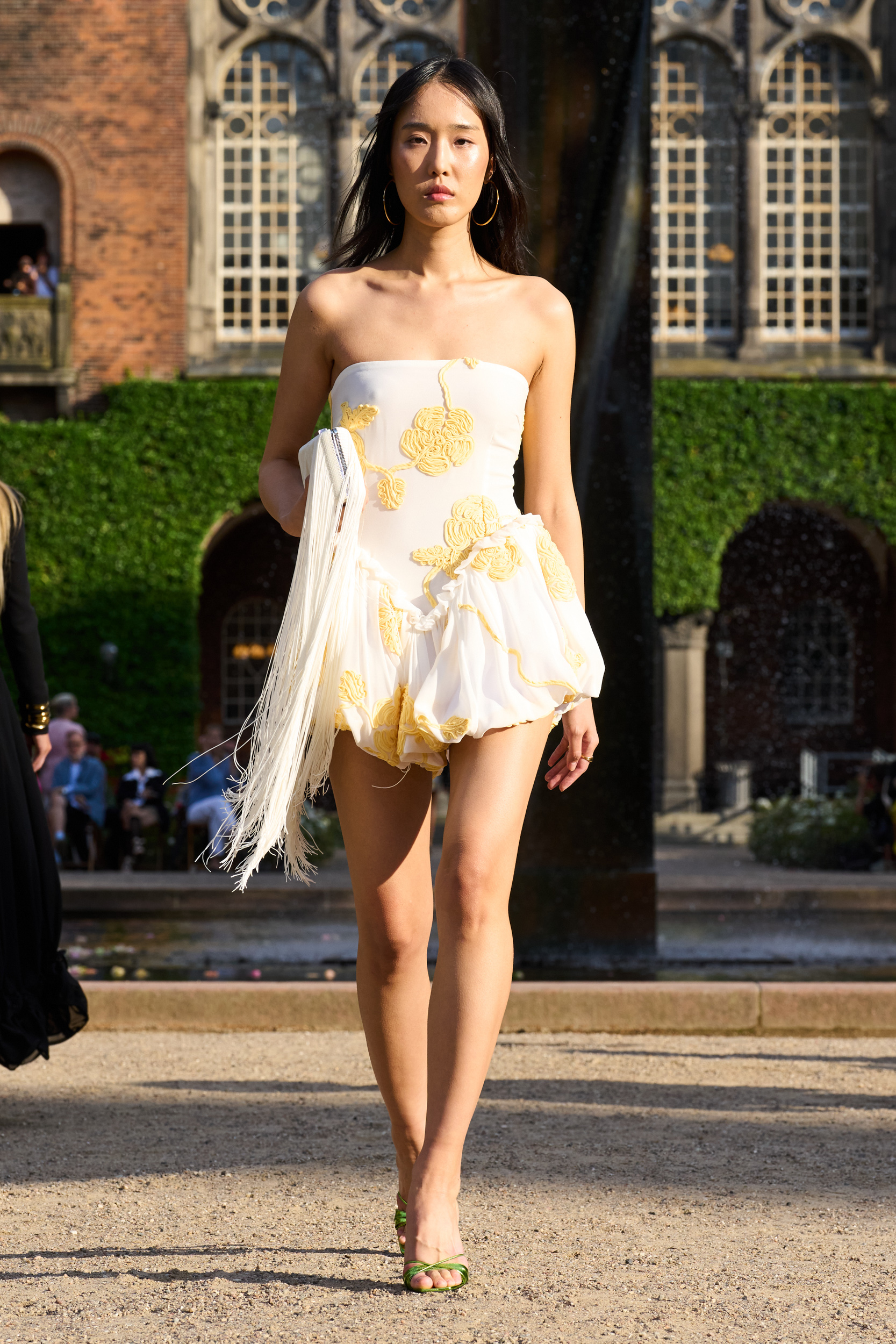
Each of these shows highlighted the diverse and dynamic nature of Copenhagen Fashion Week, from the reimagining of classic aesthetics to the introduction of bold new ideas. The SS25 season was a testament to the city’s ability to blend tradition with innovation, making it a key player on the global fashion stage.
